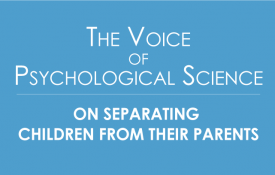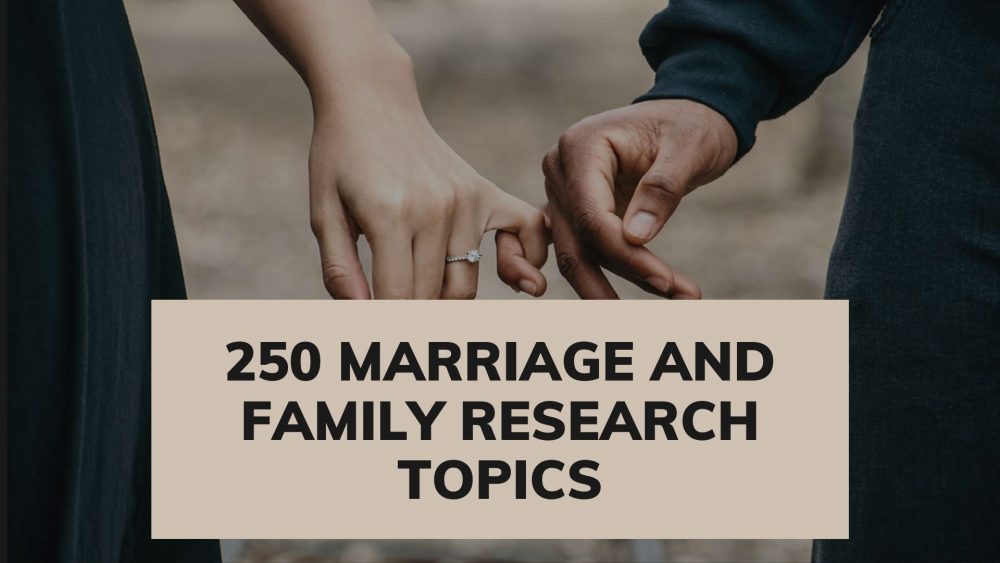We use cookies to give you the best experience possible. By continuing we’ll assume you’re on board with our cookie policy

- A Research Guide
- Research Paper Topics

40 Family Issues Research Paper Topics

Read Also: The Best Research Paper Writing Service For Writing Research Papers
40 Marriage and Family Research Topics for any Taste
- Parental neglect. Is it enough for a kid to have food, clothes, and shelter to grow up healthy?
- Divorce and its consequences for all the family members. Minimizing the negative impact of divorce
- Toxic and narcissistic parents. Overcoming the trauma of a dysfunctional family
- To live up to the family expectation: what to do if they are too high for a human being?
- Family violence: where is the point of no return?
- Sexual abuse in the family. The strategy of escaping and organizations that can help
- Toxic and abusive relationship. The psychologies issues of breaking up with toxic partner
- Substance abuse in the family. It is always possible to save yourself, but is it possible to save the rest?
- War Veterans and their families. Do Vets the only ones there who need help?
- Accepting the LGBTQ+ member of the family
- Getting out of the closet: what is like to be an LGBTQ+person in a conservative family?
- Loss of a family member: stages of grief of children and adults. How to cope together?
- Religious conflicts in families: what to do and how to solve?
- Teenage delinquency: when it turns to be more than natural seeking independence?
- Fostering a child: what problems can the parents face?
- Generation gap. The difference in morals and culture. Is it normal?
- Living with senile family members: how to cope and avoid emotional burnout?
- Mentally challenged family members: how to integrate them into society?
- The importance of family support for people with disabilities
- Pregnancy and the first year of having a baby: do tiredness and depression make people bad parents?
- The types of relationship in the family: are they healthy and just unusual or something is harmful to family members?
- Life after disasters: how to put life together again? The importance of family support
- The issue of an older sibling. How to make every kid feel equally loved?
- Gender discrimination in families. Gender roles and expectations
- Multicultural families: how do their values get along?
- Children from previous marriages: how to help them accept the new family?
- Childhood traumas of parents: helping them not to transfer them to the next generation
- Every family can meet a crisis: how to live it through in a civilized way?
- Family counseling: why it is so important?
- Accidentally learned the secrets of the family: how to cope with unpleasant truth?
- Adultery: why it happens and what to do to prevent it?
- Career choice: how to save the relationships with the family and not inherit the family business?
- The transition to adult life: the balance between family support and letting the young adult try living their own life
- Unwanted activities: shall the family take warning or it is just trendy now?
- Returning of a family member from prison: caution versus unconditional love
- A family member in distress: what can you do to actually help when someone close to you gets in serious troubles?
- The absence of love. What to do if you should love someone but can’t?
- Ageism in families. Are older people always right?
- Terminal diseases and palliative care. How to give your family member a good life?
- Where can seek help the members of the dysfunctional families?
By clicking "Log In", you agree to our terms of service and privacy policy . We'll occasionally send you account related and promo emails.
Sign Up for your FREE account

APS offers some scientific insights into family dynamics.

Research Topic: Family Relationships
From informal family caregivers at home to trained professionals in health care facilities, how caregivers act and behave can greatly impact the outcomes of those they care for.

Caregiving Across the Lifespan: Collected Psychological Science Research
Researchers have developed a method to experimentally evaluate how parents use what they know about their children's language when they talk to them.

Parents Fine-Tune Their Speech to Children’s Vocabulary Knowledge
A new study finds marriage to a spouse who grew up exposed to parental alcohol misuse increases a person’s likelihood of developing a drinking problem. [August 20, 2020]

Your In-laws’ History of Drinking Problems Could Lead to Alcohol Issues of Your Own
Unaddressed mental health concerns can echo through the generations of a family, but the exact path depression, anxiety, and other disorders may take through the branches of a family tree isn’t always straightforward.

Tending the Family Tree: Intervening in Intergenerational Mental Health
Informal social support is essential for helping employees maintain work-family balance without facing professional consequences.

For Work-Family Balance, Give Policy a Personal Touch
Evolutionary psychologists have focused much their research on the human pursuit of love and sex, but a global study shows that people's strongest motivations lie elsewhere.

Caring for Loved Ones the Top Priority for People Worldwide
Science examines how physical surroundings affect children’s development.

Growing Places: Children in Their Material Environments
The happier we feel, the less likely we are to experience memory decline.

Positive Outlook Predicts Less Memory Decline
Children whose parents considered them to be ‘overweight’ gained more weight over the following decade compared with those whose parents thought they were ‘normal weight,’ according to data from two nationally representative studies.

Children Gain More Weight When Parents See Them as ‘Overweight’
The reason people achieve a certain level of education may depend partly on genetic influences mediated by the home environment.

On Educational Attainment, It’s Nature and Nurture, Study Suggests
Early deprivation experiences, such as parental neglect, appear to be more closely associated with cognitive and emotional functioning in adolescence than early threat experiences, such as exposure to abuse.

Deprivation May Explain the Link Between Early Adversity and Developmental Outcomes in Adolescence
Beliefs about how animals should be treated are likely socially acquired.

Children Are More Likely to Prioritize the Needs of Animals
Reduced access to rewards may influence brain development, contributing to the increased prevalence of mental health disorders in children living in economically impoverished environments.

Living in Deprived Neighborhoods May Hinder Reward Anticipation, Moderating Mental Health
Individuals who report more feelings of vulnerability may have better physical health.

Worrying About Worry: Some Types of Neuroticism May Promote Greater Health Vigilance
Psychological science sheds light on how we can make our holidays tastier, friendlier, less lonely, and maybe even healthier.

Science to Help You Through the Holidays
Findings from a risk-taking game show that, when forced to make a decision that benefits either a parent or a close friend, young adults are more likely to choose the parent.

Young Adults Help Parents Instead of Friends When Forced to Choose
Supportive parenting can help protect adolescents, and their brains, against the long-lasting impact of growing up in poverty.

Supportive Parenting May Buffer Against the Neurological Impact of Poverty
Longitudinal data suggest growing up in a warm family environment in childhood is associated with feeling more secure in romantic relationships in one’s 80s.

Childhood Family Environment Linked With Relationship Quality 60 Years Later
Riana Elyse Anderson, Ed O’Brien, and Hengchen Dai discuss how to study and improve the well-being and functioning of Black families, the importance of time in how people perceive progress, and how fresh starts can feel motivating.

Special Episode I: APS 2023 Spence Awardees on Fresh Starts, Time Perception, and the Well-being of Black Families
With mixed findings and multiple plausible explanations, the question remains: How does birth order relate to personality?

Birth Order Has Little Effect on Narrow Personality Traits
The word “parenting” did not enter the popular lexicon until the 1950s, and when it did, said APS Fellow Alison Gopnik, it added fuel to a goal-centered perspective of how children should be raised that

The Parenting Trap
Media use before bedtime translates to less sleep for some, depending on level of self regulation.

Does Bedtime Media Use Harm Children’s Sleep? Only if They Struggle to Self-Regulate Behavior
African American adolescents who experience high levels of racial discrimination show cellular wear and tear, according to new research published in Psychological Science.

Family Support Buffers the Physiological Effects of Racial Discrimination
Psychological scientists describe the abundant evidence demonstrating the negative impact of separating parents and children.

The Science Is Unequivocal: Separating Families Is Harmful to Children
Accumulating evidence suggests that providing social support for others can benefit caregivers, boosting feelings of social connection.

Caring for Others Can Bring Benefits
Although some people may be genetically predisposed to divorce, that doesn’t mean it’s written in the stars. An adoption study of nearly 20,000 Swedish participants in Psychological Science suggests, however, that when it comes to

Genes May Outweigh Upbringing in Family Patterns of Divorce
The intense exhaustion of parental burnout can lead parents to feel detached from their children and unsure of their parenting abilities.

Parental Burnout Can Lead to Harmful Outcomes for Parent and Child
Exploring this claim provides an opportunity to discuss issues involving nature and nurture in developmental and personality psychology.

Myth: Children Raised in Similar Ways Have Similar Personalities
Children as young as 4 years old may reap better health from altruistic giving, a behavior that tends to be less common among kids from high-income families.

Kids’ Altruism Linked with Better Physiological Regulation, Less Family Wealth
Privacy overview.
101 Family Relationships Essay Topic Ideas & Examples
🏆 best family relationships topic ideas & essay examples, 🥇 most interesting family relationships topics to write about, 📌 simple & easy family relationships essay titles, ❓ research questions about family relationships.
- My Belief About Family Relationships I have chosen to discuss my belief about family relationships instead and how my father and family play an important role in shaping that belief. That is my belief in life and I know that […]
- Family Relationship Analysis with Use of Genogram When we look at John and Mary’s relationship, we see that they have a close and stable relationship, which may have influenced their children’s and grandchildren’s communication patterns.
- Conflict Communication in Family Relationships People in conflict have to be ready to analyze their situations and problems to achieve the goals and come to a certain conclusion.
- Platonic and Familial Relationships in Emerging Adulthood One of the main factors that can and should be used to resolve problems in platonic relationships is boundaries. The advice that can be given to young adults is that emotional connection and mutual support […]
- “Twisted” by Laurie Halse Anderson: Family Relationships As a result, Tyler wants to commit suicide he takes his father’s gun, and it may be regarded as a symbol of the boy’s wish to leave his father guilty for his death. However, in […]
- Modern Families: Intimate and Personal Relationships Since Queen’s family lived in the United States and my family resided in England, this paper presents an integrated comparison of household aspects in the two countries.
- Counseling Interview in Family and Relationship Therapy My choice of questions for the interviewees on matters related to life, relationship and family will be designed as linear and systematic questions to aid in formulating an assessment.
- Home, Work, and Relationships in Modern Families The study found that parents were in one room without their children for less than 10% of the observed time. Another finding from the article was that 77% of families ate dinner together at least […]
- Managing Interpersonal Relationships in Family Since there has been limited communication with my family, no person was aware of the project and the sensitivity of the compromised information.
- Family Relationship: Life-Span Development The majority of middle-aged individuals try to preserve a good connection with their families because they realize their parents are old and all they want is quality time.
- Relationship: Communication Between Family Members Undoubtedly, family is one of the essential elements in a society where the individual is considered in their “full measure,” and accordingly, in each family, there are unique and individual ways and methods of interaction.
- “Family Relationships in What It Means to Say Phoenix Arizona” by S. Alexie Victor’s father had died of a heart attack, and the journey to his funeral is at the center of the tale.
- Sociology of the Family: Love and Relationships Romantically entangled pair dates continuously, and the primary objective of this type of relationship, especially in college, is to provide company, and it is more of a necessity in high school.
- Family Relationship, Childhood Delinquency, Criminality In regard to the relationship between the effect of various factors involved in a child’s upbringing and the likelihood of becoming a criminal during adulthood, varied findings were made.
- Modality of Family Faith and Meanings and Relationships in Family Life The theme of this study is to investigate two broad categories of modalities of faith in family life: first, what they value or seek, and how they relate to God or to others and the […]
- Family Relationships in Gilman’s The Yellow Wallpaper Being the brain and the intellectual reason of the family, the husband wisely guides the ship of his matrimonial unit through all the possible mishaps and traps and takes the necessary precautions in order to […]
- Family Relationship: Lawrence and Joyce The revolt of Stephen Dedalus begins in Joyce’s The Portrait of the Artist as a Young Man with his rejection of the blind religious attitude found existing in his family.
- Family Relationships of an Anorexic Person The rest of the poem confused and inspired me as a reader because Smith, as well as millions of people around the globe, proved the impossibility to have one particular definition of anorexia in modern […]
- Stepfamily Relationships: The Blended Family Interview The third question concerned such appearances and the overall degree of the man’s attachment to the child. The sixth question was about the introduction itself and the child’s reception of it.
- American Family Relationships: Dynamics Alterations The identified shift in the values and behaviors of young people has affected the structure of a modern American family to a certain extent.
- Sociology of Family: Control and Violence in Relationships In the last type of intimate violence, situational couple violence, the individual might be violent, but the partner is not, even though the aspect of control is not present.
- Family Types, Relationships and Dynamics In the case of a consanguine family, the relationship with the family is more absolute in that expenses, food, and other aspects related to living within the same “roof” are shared.
- Family Systems and Relationship Development With the advent of the concept of family systems, the importance of the family unit can now be approached from a different perspective.
- Family and Relationships: New Tendencies For instance, one of the apparent advantages of online dating is the lack of awkwardness peculiar to face-to-face communication, especially during first meetings. That is why more research is needed to conduct the in-depth investigation […]
- Family Relationships Role in the Business It seems that Barry Jr, as well as the other shareholders, failed to implement family talents and skills in an effective way.
- Family Relationships in Media and Theories Understanding the way in which relationships are built between family members, as well as learning about the nature of the connection between family members, is crucial to the identification of the existing issues and their […]
- Family Relationships: Psychological Inquiry When parents exert excessive control on the lives their children, the ties that should exist in the family break and the victims develop hatred and aggression.
- Literature Review and Research Methodology Draft: Effects of Internet Addiction on Family Relationships Among Teenagers The focus of the literature review will be to find information on effects of the internet on family members and also to determine the current state of research as regards to the effects of the […]
- Staff & Family Relationship and Communication Information sharing amid families and staff is crucial in the daily updates of occurrences in the school; furthermore, there are several ways of attaining this concept. The family fraternity should be invited at the start […]
- Post Traumatic Stress Disorder in Veterans and How Family Relationships Are Affected Both qualitative and quantitative data shall be used with numbers being used to provide evidence of the occurrence and magnitude of the effects of the condition on the population.
- Aggression and the Role of Family Relationships in Aggression
- Conflicts That Appear Within the Sphere of Family Relationships
- Destructive and Productive Family Relationships: A Stewardship Theory Perspective
- Family Relationships and Support Systems in Emerging Adulthood
- The Impact of Family Relationships on School Bullies and Their Victims
- Social and Family Relationships of Ex‐Institutional Adolescents
- Patterns of Interaction in Family Relationships and the Development of Identity Exploration in Adolescence
- Theories of Family Relationships and a Family Relationships Theoretical Model
- Can Addressing Family Relationships Improve Outcomes in Chronic Disease?
- Communication, Conflict, and the Quality of Family Relationships
- Family Relationships and Adolescent Pregnancy Risk
- Current Concepts About Schizophrenics and Family Relationships
- The Family and Family Relationships, 1500-1900: England, France, and the United States of America
- The Role of Social Support and Family Relationships in Women’s Responses to Battering
- Family Relationships and Their Correlations With Transsexual Well-Being
- Impact of Family Relationships on Attitudes of the Second Generation in Family Business
- Post‐Divorce Family Relationships as Mediating Factors in the Consequences of Divorce for Children
- From Contract to Status: Collaboration and the Evolution of Novel Family Relationships
- Family Caregiver Role and Burden Related to Gender and Family Relationships
- Influence of Family Relationships on Succession Planning and Training: The Importance of Mediating Factors
- Family Contexts as Cognitive Networks: A Structural Approach of Family Relationships
- Perceived Family Relationships of Bullies, Victims, and Bully/Victims in Middle Childhood
- Examining the Effect of Incarceration and In-Prison Family Contact on Prisoners’ Family Relationships
- Extended Family Relationships, Social Support, and Mental Health in a Southern Black Community
- Religion’s Role in Organizing Family Relationships: Family Process in Rural, Two-Parent African American Families
- Educational Inequality and Family Relationships: Influences on Contact and Proximity
- Enacting Family Relationships in Joint Storytelling About Difficult Family Experiences
- Dysfunctional Family Relationships Among Canadians
- Financial Stress, Family Relationships, and Australian Youths’ Transitions From Home and School
- Intergenerational Family Relationships: An Evaluation of Theory and Measurement
- Children’s Internet Use in a Family Context: Influence on Family Relationships and Parental Mediation
- Family Involvement in the Nursing Home: Family‐Oriented Practices and Staff-Family Relationships
- Conflict Resolution: Links With Adolescents’ Family Relationships and Individual Well-Being
- Interdependence and the Interpersonal Sense of Control: An Analysis of Family Relationships
- Conversational Remembering and Family Relationships: How Children Learn to Remember?
- Implications of Overwork and Overload for the Quality of Men’s Family Relationships
- Feminist Theory and Research on Family Relationships: Pluralism and Complexity
- Some Things Are Better Left Unsaid: Topic Avoidance in Family Relationships
- Authority, Autonomy, and Family Relationships Among Adolescents in Urban and Rural China
- Changing the Ties That Bind: How Incarceration Impacts Family Relationships?
- What Makes Good Family Relationships?
- What Are Family Relationships in Simple Words?
- How Do You Build Strong Family Relationships?
- What Are the Roles and Family Relationships in a Common Family?
- Why Is It Important to Have Good Family Relationships?
- How Do You Cope With Family Relationships Problems?
- What Is an Example of Family Relationships?
- What Are the Five Most Important Things in Family Relationships?
- What Are the Four Types of Family Relationships?
- How Many Types of Family Relationships Are There?
- What Are Meaningful Family Relationships?
- What Makes Successful Family Relationships?
- What Are the Five Characteristics of Healthy Family Relationships?
- What Are Common Family Relationships Problems?
- Why Are Family Relationships Difficult?
- What Are Unhealthy Family Relationships?
- What Role Does Love Play in Family Relationships?
- How Does Family Size Directly Affect Family Relationships?
- Has Technology Had a Positive or Negative Effect on Family Relationships?
- What Is the Positive Effect of Technology on Your Family Relationships?
- How Technological Advancement Has Affected Family Relationships?
- Why Are Family Relationships Important?
- How Do Cellphones Affect Family Relationships?
- What Are Considered Family Relationships?
- What Are the Seven Ways to Build Family Relationships?
- What Are the Three Common Problems of Teenagers in Family Relationships?
- How Does Alcohol Affect Family Relationships?
- What Are Men’s Roles in the Family Relationships?
- What Is a Man’s Responsibility in Family Relationships?
- Why Do a Man and a Woman Need to Create Good Family Relationships?
- Chicago (A-D)
- Chicago (N-B)
IvyPanda. (2024, February 29). 101 Family Relationships Essay Topic Ideas & Examples. https://ivypanda.com/essays/topic/family-relationships-essay-topics/
"101 Family Relationships Essay Topic Ideas & Examples." IvyPanda , 29 Feb. 2024, ivypanda.com/essays/topic/family-relationships-essay-topics/.
IvyPanda . (2024) '101 Family Relationships Essay Topic Ideas & Examples'. 29 February.
IvyPanda . 2024. "101 Family Relationships Essay Topic Ideas & Examples." February 29, 2024. https://ivypanda.com/essays/topic/family-relationships-essay-topics/.
1. IvyPanda . "101 Family Relationships Essay Topic Ideas & Examples." February 29, 2024. https://ivypanda.com/essays/topic/family-relationships-essay-topics/.
Bibliography
IvyPanda . "101 Family Relationships Essay Topic Ideas & Examples." February 29, 2024. https://ivypanda.com/essays/topic/family-relationships-essay-topics/.
- Adolescence Questions
- Personal Ethics Titles
- Gender Differences Questions
- Gender Roles Paper Topics
- Arranged Marriage Questions
- Postpartum Depression Paper Topics
- Childbirth Titles
- Family Therapy Questions
Numbers, Facts and Trends Shaping Your World
Read our research on:
Full Topic List
Regions & Countries
- Publications
- Our Methods
- Short Reads
- Tools & Resources
Read Our Research On:
New Facts About Families
Recent findings on family meals, cohabitation and divorce.
by D’Vera Cohn, Senior Writer, Pew Research Center
More than 2,000 demographers, sociologists and others converged on Washington, D.C., recently for the Population Association of America’s annual meeting . Among the poster sessions and papers presented were some that dispute the popular (or academic) wisdom about important aspects of family life. Three are described here, along with Pew Research Center survey findings that bear on the topics they cover — family meals, cohabitation and divorce.
Conference presentations are typically works-in-progress, to be revised as more information becomes available or challenges to their methodology are resolved. They are not the final word on these topics, and should not be taken as the new conventional wisdom. But they raise valuable questions about substantive issues.
Family Meals
Take family meals, for example. Everybody knows that children turn out better if they grow up in a home where the family gathers around the dinner table each night, right? Not so fast, according to a poster presented by researchers from Boston University and Columbia University. They used data from the Early Childhood Longitudinal Study to ask whether academic performance and behavior of children from kindergarten through eighth grade could be linked to how often they ate breakfast or dinner with their families. (They accounted for — in research parlance, “controlled for” — factors such as family income and school quality that also could affect their results.)
[family meal frequency]
A recent Pew Research Center report on family issues includes some data on frequency of family meals, taken from a survey of adults last October. Among parents of children under age 18, half say they have dinner every day with some or all of their children, 34% say they have family meals a few times a week, 11% say they do so occasionally and 3% say they never do.
Cohabitation
On the topic of cohabitation, everybody knows that couples who live together before marriage are more likely to divorce than couples who do not, because that is what much research has found. But some recent work disputes that conclusion. Now that most couples move in together before they marry, cohabitation may not be as linked to divorce as it was when live-in couples were less common.
The Pew Research Center report on families , released last year, found that 44% of adults (and more than half of 30- to 49-year-olds) say they have cohabited at some point. Nearly two-thirds of adults who ever cohabited (64%) say they thought about it as a step toward marriage. The report also notes a trend toward rising public acceptance of cohabiting couples over the years. Most Americans now say the rise in unmarried couples living together either makes no difference to society (46%) or is good for society (9%).
A paper by Bowling Green State University researchers , using data from the National Survey of Family Growth , concluded that among women who married since the mid-1990s, cohabitation is not tied to heightened risk of divorce. Looking at women who married in the past 15 years, “our work shows that cohabitation no longer influences marital instability,” wrote researchers Wendy D. Manning and Jessica A. Cohen in the paper they presented at the population meeting.
An abundance of research about divorce links it to increased risk of problems for children both in the immediate aftermath of the split and later on in life. In fact, the phrase “intergenerational transmission of divorce” is used to describe the elevated risk of divorce among children whose parents divorced. But in certain cases, a parent’s divorce does not raise the risk that their children’s marriages or cohabitations will break up, according to a paper by researchers at Montclair State University .
Using data from the National Survey of Families and Households , Constance T. Gager and Miriam R. Linver compared the relationship paths of adult children who grew up in different types of households. They focused especially on children whose parents often argued. In general, having “high conflict parents” is associated with a child’s higher risk of divorce in adulthood, but the researchers concluded that it also matters whether the parents stay together or split up. They wrote: “Our key findings are that children who had high conflict parents are less likely to have experienced a cohabiting or marital dissolution if their parents divorced compared to children from high conflict families whose parents remained together.”
A 2007 Pew Research Center report found that most Americans (58%) think that divorce is preferable to staying in an unhappy marriage. A larger majority (67%) says that in a marriage where the parents are very unhappy with each other, the children are better off if their parents get divorced; 19% say the children are better off if their parents stay together; and 9% say it depends.
Sign up for our weekly newsletter
Fresh data delivery Saturday mornings
Sign up for The Briefing
Weekly updates on the world of news & information
- Family & Relationships
- Household Structure & Family Roles
Teens and Video Games Today
Americans are less likely than others around the world to feel close to people in their country or community, who do americans feel comfortable talking to about their mental health, few east asian adults believe women have an obligation to society to have children, among parents with young adult children, some dads feel less connected to their kids than moms do, most popular.
1615 L St. NW, Suite 800 Washington, DC 20036 USA (+1) 202-419-4300 | Main (+1) 202-857-8562 | Fax (+1) 202-419-4372 | Media Inquiries
Research Topics
- Age & Generations
- Coronavirus (COVID-19)
- Economy & Work
- Gender & LGBTQ
- Immigration & Migration
- International Affairs
- Internet & Technology
- Methodological Research
- News Habits & Media
- Non-U.S. Governments
- Other Topics
- Politics & Policy
- Race & Ethnicity
- Email Newsletters
ABOUT PEW RESEARCH CENTER Pew Research Center is a nonpartisan fact tank that informs the public about the issues, attitudes and trends shaping the world. It conducts public opinion polling, demographic research, media content analysis and other empirical social science research. Pew Research Center does not take policy positions. It is a subsidiary of The Pew Charitable Trusts .
Copyright 2024 Pew Research Center
Terms & Conditions
Privacy Policy
Cookie Settings
Reprints, Permissions & Use Policy

- 90 Fresh Sociology Research Topics on Family
In some schools, the teachers or lecturers may pick sociology research topics about family for them. In other schools, they allow their students to choose their own topics. While choosing your own topic is a fun thing to do, sometimes, you just may be at a loss in picking the right topic. Most times, this is because every topic you have thought about has been already picked.
If that student is you, you do not have to worry. In this article, you will be getting 90 sociology of the family research topics to choose from. Whether they be sociology research topics on marriage, parenthood, or childhood, there is something here for you.
Sociology Research Topics on Family
- Discuss the Structure of a 21st-century Family
- Discuss the Challenges of Family Migration
- Discuss the Needs of a Modern-Day Family
- Discuss the Impacts of Divorce on a Family
- Discuss the Role of the Parents in Raising Responsible Children
- Discuss How Parents and Teachers Can Work Together to Help Children
- Discuss the Challenges of Living on Alimony
- Discuss Child Support
- Discuss the Effects of Single-Parenting
- Discuss Dual Career Family
- Should a Couple Split the Bills 50:50?
- Discuss the Impact of a Miscarriage on a Family
- Discuss the Impact of Infant Mortality on a Family
- Discuss the Impact of a Spouse’s Death on a Family
- Discuss Ethnic Diversity in a Family
- Discuss Religious Diversity in a Family
- Discuss Personality Clashes in a Family
- Discuss the Rebellion of a Child in a Family
- How to Resolve Family Conflict
- Discuss the Choice and Effect of Abortion in a Family
- Discuss Family Planning
- Discuss Domestic Violence in a Family
- Discuss Violence on Children in a Family
- Discuss Parental Neglect
- Discuss Family Therapy
- Discuss the Role of the Father in a Family
- Discuss the Role of the Mother in a Family
- Discuss the Role of the Children in a Family
- Discuss Favouritism in a Family
- Write About Infidelity in a Marriage
- Discuss Homosexual Marriages
- Discuss the Effects of Separation in a Family
- Discuss the Place of Intimacy in a Family
- Discuss the Impact of Having a Large Family
- Discuss the Impact of Having a Small Family
- Discuss Love and Commitment
- Compare Divorce Rates in Past and Recent Times
- Discuss Patriarchy in the Family
- Discuss Matriarchy in the Family
- Discuss How a Family Can be Financially Responsible
- Discuss Motherhood
- Discuss Fatherhood
- Discuss Childhood
- Discuss the Effects of Remarriage on the Children
- Discuss Step-family
- Discuss the Relationship of Siblings in a Family
- Discuss Long-distance Marriage
- Discuss the Ideal American Family
- Discuss Personal Identity in a Family
- Discuss the Importance of Helping Out in the Home
- Discuss Intermarriage
- Discuss Exogamy
- Discuss the Role of the Family in Teaching the Children Sex Education
- Discuss the Effects of Having a Family Member in Prison
- Discuss the Role of Formal Education in a Family
- Discuss the Effects of a Family’s Decision to Homeschool Their Kids
- Discuss Depression in a Family
- When Society Ostracizes a Family
- Discuss the Suicide of a Family Member on a Family
- Discuss Division of Inheritance in a Family
- How Children See Their Parents as Role Models
- The Reasons a Family Could Split
- How Families Can Help Their Queer Children
- How Parents Can Help Their Children Overcome Traumas
- The Importance of Family Support
- What Roles Parents Play in Their Children’s Misbehaviour
17% OFF on your first order Type the code 17TUDENT
Sociology Research Questions About Family
- How Can Parents Help Their Teenagers to Prevent Pregnancy?
- How Can Parents Help Their Teenagers to Prevent Sexually Transmitted Infections?
- Should Parents Encourage Their Teenagers to Get an Abortion?
- Is Marriage Necessary in the 21st-century?
- How Can Parents Help Their Children Overcome Addiction?
- What Can Parents do About Deviant Behaviour in Their Children?
- How Can Parents Help Their Children Overcome Abuse?
- Why is it Necessary for Children to Take Over Family Businesses?
- What are the Effects of Having Two Fathers?
- What are the Effects of Having Two Mothers?
- What are the Roles of Grandparents in a Family?
- Can Equality Exist in a Family?
- What is Family Inheritance?
- What is Family Law?
- Do Vacations Truly Help Couples Bond?
- What are the Impacts of House-husband?
- What are the Impacts of Being A Housewife?
- Should Polygamy be Encouraged in Today’s Society?
- What are the Effects of Endogamy?
- How Can Parents Prevent Bullying?
- When Should a Couple Consider Divorce?
- What is Care-work in a Family?
- What are the Dangers of Cohabitation?
- What Should the Standard Size of A Nuclear Family be?
With these sociology research topics on family, you no longer have to worry about thinking hard to come up with a topic. Simply pick a topic from the list and write.

Related Posts
- 55 Sociology Research Topics for High School Students
- 85 Environmental Sociology Research Topics
- 90 Interesting Sociology Research Topics for College Students
Recent Posts
- Top 91 Medical Sociology Research Topics
- Frontiers in Psychology
- Psychology for Clinical Settings
- Research Topics
Tools for Assessing Family Relationships
Total Downloads
Total Views and Downloads
About this Research Topic
Recent evidence from clinical practice and research in the field of Clinical Family Psychology highlights the importance of finding reliable tools and methods for assessing couple and family relationships. Expectations from both clinical services and academics are that professionals can collect reliable ...
Keywords : Family Relationship Assessment, Couple Assessment, Family Clinical Psychology, Family Clinical Practice, Family Health Psychology, Psychometrics for relational assessment
Important Note : All contributions to this Research Topic must be within the scope of the section and journal to which they are submitted, as defined in their mission statements. Frontiers reserves the right to guide an out-of-scope manuscript to a more suitable section or journal at any stage of peer review.
Topic Editors
Topic coordinators, recent articles, submission deadlines.
Submission closed.
Participating Journals
Total views.
- Demographics
No records found
total views article views downloads topic views
Top countries
Top referring sites, about frontiers research topics.
With their unique mixes of varied contributions from Original Research to Review Articles, Research Topics unify the most influential researchers, the latest key findings and historical advances in a hot research area! Find out more on how to host your own Frontiers Research Topic or contribute to one as an author.

- Services Paper editing services Paper proofreading Business papers Philosophy papers Write my paper Term papers for sale Term paper help Academic term papers Buy research papers College writing services Paper writing help Student papers Original term papers Research paper help Nursing papers for sale Psychology papers Economics papers Medical papers Blog

250 Outstanding Marriage and Family Research Topics

Looking for the best marriage and family research topics for your sociology paper? With the changing dynamics of family and marriage, there is always scope for more research. This leaves you with endless options for a suitable title for your paper. To make the process simpler, here is a list of the best topics on marriage and family to help you narrow down the choices. It is good to remember that some of these topics may evoke conflicting emotions and opinions. therefore, they are best handled with sensitivity and objectivity. They present ample scope for classroom discussion and debates. However, pick a topic that also presents sufficient scope for research to showcase your understanding of the subject and writing skills as well.
Trending Marriage and Family Research Topics
Here is a list of some of the most commonly used topics on marriage and family that will help you get ample supporting data and content.
- The evolution of the concept of marriage
- The changing role of spouses in a modern marriage
- Changes in the values around marriage and family over the last decade.
- The effect of social media on marriages
- Types of marriages in Nigeria
- Cultural differences and its effect on the sociology of marriages
- The influence of media on marriage and family
- Change in marriages in your country
- Does gen X think that marriage is an outdated concept
- The sociology of inter-racial marriages
- A traditional role that men could perform better than women and vice versa.
- The social benefits of a marriage
- The financial benefits of a marriage
- How does mental health affect marriages?
- The important role of stress in modern marriages.
- Getting married but not choosing to have children. The benefits and risks.
- How long should a couple know each other before getting married?
- Should gender roles within a marriage be maintained strictly? What are the benefits and risks?
- Does society benefit from prioritizing marriage
- Living with an unmarried partner or marriage. Which has a higher level of relationship satisfaction?
- Your thoughts on an egalitarian marriage
- Marriage is a public performance in the age of social media. Your understanding of this statement.
- Is financial instability one of the most common reasons for not getting married.
- The steady decline in marriage among individuals without a college degree.
- Marriage rate for women with good education is higher.
- People who want children should get married. Your thoughts on this.
- The common causes for decline in marriage rate in modern society
- The concept of arranged marriages across the world.
- The role of matrimonial sites in modern marriages.
- Are dating apps a reliable option to meet a suitable partner for marriage?
- Is marriage rate affected by ethnicity?
- The effect of substance abuse on a marriage
- Physical acts of aggression in a marriage. When does one go too far?
- Financial independence of women and its effects on marriage.
- Increasing rate of infidelity in marriages. What are the common causes?
Best Research Topics on Family
Here is a list of some of the best family research topics that explore the changing dynamics on family structures in the recent times.
- How can you define the term ‘family’?
- Family background determines your rate of success in career and life. Comment.
- What are the consequences of divorce on children?
- Overcoming trauma of a dysfunctional family
- Is it possible to always live up to family expectations?
- The effects of parental neglect on children.
- How to minimize negative effect of divorce on a family
- War veterans and their families. Do they really need help?
- Family and its impact on teenage delinquency
- Stages of grief in children after the loss of a family member
- Stages of grief in an adult after the loss of a family member
- How should families cope with the loss of a family member?
- The increasing problem of work-life balance and its impact on families
- Joint family versus a nuclear family
- Family members who should have a say in the upbringing of a child
- Fostering children and the issues that arise
- Substance abuse within a family. How to save yourself and the rest of your family?
- Sexual abuse within a family. Strategies to escape it.
- Family violence in the last decade. Has it increased?
- The effect of setting very high expectations for members of the family.
- Family values: Should they be strict or flexible?
- Different types of relationships within a family.
- Putting life together after a natural disaster.
- Accepting children from a previous marriage into your family.
- How to meet a crisis as a family
- The issue of gender discrimination within a family.
- Gender roles and expectations of the family
- Coping with unpleasant secrets of your family
- The pressure of inheriting a family business and the impact on children and younger members of the family.
- Balancing between family support and allowing young adults to live their lives on their own.
- How involved should the family be in one’s career?
- The absence of love within a family
- Helping a family member in distress.
- Unwanted activities that modern families engage in
- Accepting the transition of children into adult lives.
Family Life Education Topics for Research
Among the many family and marriage topics for discussion, family life education is an important concept that presents a huge scope for research.
- The objectives of family life education
- The importance of family life education
- The primary principles of family life education
- The practices of family life education and their importance in effective outreach.
- How family life education can improve moral codes in young adults
- The importance of family life education in developing a good personality in adolescents
- Complementing parent education with family life education.
- How family life education can fill the gap when parents abdicate responsibilities.
- The three behavioural needs for family planning.
- Importance of setting priorities when planning a family.
- Resources that teen parents need for effective parenting.
- Tools to build resilience in teen parents
- Family life education and psychology
- Family life education and social work.
- The 10 contents of family life education.
- Family life education is one of the most flexible fields of sociology. Your comments.
- Family life education to help problem teens cope in college or school.
- The role of family life education in decision making among family members.
- Write in detail about a decision making model that youth can benefit from when it comes to family planning decisions.
- Skill application in family planning.
- Parenting classes: A modern trend or a necessity for new parents?
- Identifying personal attitude and belief in teen parenting.
- How family life education contributes to overall well being and growth of a family.
- Assessing knowledge levels of adolescent girls with respect to issues in family life education.
- The key areas of study of family life education.
- Differences in rural and urban approach to family life education.
- How to set up an effective intervention plan when dealing with family life education crisis
- The challenges of parents with adolescent parents.
- Using family life education to teach teens about balancing between responsibility and freedom.
- Critical interests of preschool children
- Stimulating growth and development of preschool children.
- The right time to plan for a second child.
- Adjusting to the ‘Empty Nest Syndrome’.
- Importance of family life education in reproductive health.
- Population education versus family life education.
Sociology of Family Research Topics
Family structures are an important part of studying sociology. Here are trending sociology research topics on family to help you ace your papers.
- Unconventional family structures in the modern world.
- Child behaviour and the impact of parents on it.
- Child abuse and its long term effects
- The impact of cross-racial adoption
- The challenges of cross-racial adoption
- Differences in family structures across ethnic groups and races
- How single parenting impacts the life of children.
- The impact on children when couples live apart.
- The impact on family structure when couples live apart.
- Family and its involvement in community
- The role of the community in changing family structures.
- Different household structures within families
- The earner-carer family model
- The need for dual earner couples
- The evolution of household structures within families
- The importance of dividing household labour within a family.
- What is family demography?
- Effective ways of dealing with family conflicts
- What is maternalism?
- The changing approach to filial responsibility
- Effective family migration planning
- The challenges faced by immigrant families.
- Examples of matriarchal family structures across the globe.
- The changing roles of a woman in a family.
- The changing roles of a man in a family.
- Effective ways to manage money within a family
- The important parental roles in deciding the outcomes for children.
- Sibling relationships at different ages.
- Dealing with stepfamilies.
- Challenges faced by stepmothers and how to overcome them?
- Challenges faced by stepfathers and how to overcome them?
- The concept of sibling ties.
- Causes for increase in female householders
- Deteriorating economic circumstances of men and the impact on family structures.
- Cohabitation and a decline in marriage.
Popular Research Topics on Gay Marriage
With the legalization of same sex marriage in many countries while some still remain in conflict, there are several gay marriage topics that you can write about.
- Should the government have a say in marital decisions?
- Why is gay marriage illegal in some countries?
- The importance of legalizing same sex marriages.
- The social challenges faced by same sex couples.
- How to help a member of the family who has come out of the closet.
- Accepting same sex marriage with a family.
- How to support family members who belong the LGBTQ community?
- The effect of same gender parents on the social life of a child.
- Challenges faced by gay couples with adoption.
- Can gay couples provide the same parenting structure as straight couples?
- Common marriage and family issues for gay people.
- Differences between a heterosexual marriage and same sex marriage.
- Do same gender couples make fit partners? The common consensus.
- The limitations imposed by the law on same sex couples.
- The importance of marriage for gay couples
- Divorce among gay couples. Is it harder to get professional assistance?
- Legalising same sex marriage and the impact on psychological well-being.
- Impact of same sex marriage on the society.
- Are changing contours of family making it easier to accept gay and lesbian marriages?
- Legal decisions affecting children of same sex parents.
- Anticipatory minority as a stressor among same sex couples.
- Civil Union versus same sex marriage.
- Defining household structures in same sex homes.
- Potential differences in the political attitude between heterosexual and homosexual couples.
- Child development and homosexual parenthood.
- The differences in social challenges of a gay marriage and lesbian marriage.
- Emotion work in gay, lesbian and heterosexual relationships.
- Same sex civil partnership and its impact of health.
- How same sex marriage impacts the understanding of same sex relationship.
- A sociological perspective on the legal recognition of same sex marriages.
- Perspectives of gay and lesbian marriages across the globe.
- Czech lesbian activism. Explain some of the significant events.
- Safety concerns for same sex couples in the society.
- The psychology of children of same sex couples.
- Domestic violence in same sex marriages.

Marriage and Family Therapy Research Topics
Whether it is research paper on relationships, marriage or family structure, therapy and counselling plays an important role in today’s world. Here are some topics that are trending and relevant.
- Stress and its impact on family or marriage counselling.
- Qualities of a good family therapist.
- The role of pre-marriage counselling in strengthening relationships.
- Techniques of family therapy
- The key concepts of family therapy
- Objectives of marriage and family therapy
- Living with a family member who has mental health issues
- Providing family support to members with mental health issues.
- Importance of family therapy in the sociology of family.
- The emergence of family therapy as an identifiable field of psychology.
- Family therapy and its importance in social work.
- Child guidance and mental health
- Family systems model of therapy.
- Improving communication patterns within family through counselling.
- The concept of function and purpose of symptoms.
- The circular causation model of family therapy.
- Recognizing structural characteristics of families through therapy
- The increasing need for family and marriage therapy.
- How family therapy can help cope with members who are addicted to substances.
- Family therapy and child sexual abuse.
- Family therapy versus marriage counselling.
- Non systemic postmodernist models of family therapy.
- The challenges faced by family therapists.
- Factors that limit the scope of family therapy.
- History of professional marriage and family therapy.
- The evolving treatment of gender in family therapy.
- The evolving treatment of sexual orientation in family therapy.
- The perspective of family and marriage therapy among various ethnic groups.
- The need for counselling for children of divorce.
- Family therapy to help deal with loss of family members.
- Family therapy to cope with terminally ill family members.
- Significant models of family therapy in the modern world.
- Important research papers on family therapy.
- The pioneers of family and marriage counselling.
- Changes in psychiatry and its role in the development of family therapy.
- The contributions of Harry Stack Sullivan to family therapy.
- Factors that contribute the positive mental health among family members.
- The impact of cultural systems on the understanding of family dynamics.
- Family therapy and its integration into family medicine.
- Common treatment protocols in family therapy.
Divorce Topics For Research Paper
Because of the social and emotional impact that it has, divorce is among the most important marriage topics for discussion.
- Study of abusive and toxic relationships within a family.
- The causes for increasing divorce rates.
- Perception of divorce among different ethnicities.
- The impact of culture on the perception of divorce.
- Marriage counselling as an effective way of preventing divorce
- The trauma of child custody battles
- The impact of child custody battles on the child.
- The social perspective of divorced couples.
- Raising children as a divorced couple.
- A study on family violence
- The changing perspective of marriage among children of divorce.
- The impact of divorce on the social lives of children.
- Sociological consequences of divorce.
- Changing patterns and trends of divorce
- Is divorce a social problem?
- The negative consequences of divorce
- The positive consequences of divorce
- The economical consequences of divorce
- How divorce impacts your social circle.
- The impact of increasing divorce rates on society.
- Ideological considerations of divorce
- The process of marital breakdown.
Family Law Topics for Research
Here is a list of family law topics that have a good scope for data collection so that you can present an impressive paper.
- Shared residence orders versus single residence orders.
- The need for reform and alteration in family laws in your country.
- Relationships, family and the law
- Reform in the cohabitation law.
- The Children Act of 1989 and its importance in Family Law.
- Extending civil marriage availability to same sex couples. Write your views for and against this topic.
- Laws regarding non-conjugal relationships.
- The role of family law in determining the boundaries of marriage.
- Child relocation and the laws associated with it
- Divorce decisions based on the Principles of Fairness
- The matrimonial cause act of 1973. Discuss its importance and the evolution.
- Discuss three family laws that may be irrelevant in the modern world.
- Why is it necessary to establish family laws?
- The Piglowska versus Piglowski case of 1999 and its impact on divorce law decisions.
- The role of religion on divorce laws.
- Providing legal support to make victims of domestic abuse.
- Why are child protection laws important?
- The legal aspects of family welfare and social work.
- Intervention of the State or authorities in families where children are abused or neglected.
- Termination of parental rights in case of neglect or abuse. Is it the right approach?
- Family laws about inheritance.
- The changing laws of adoption.
- A comparison of family laws in the West and the East.
- Are family laws more liberal in the West?
- Is the concept of alimony redundant in today’s world?
- The need for legal validation of relationships.
- Should women receive child support even if they are financially stable?
- Is it correct for one parent to withhold visitation rights of the other?
- Challenges faced by family lawyers.
Family Bible Study Topics of Research
Religion is a primary construct in the family structure. Here are some best rated family bible study topics that you can choose from:
- Family bible study and its role in establishing values with a family.
- How to use family bible study to improve the personality of adolescents.
- The role of family bible study in increasing bonding between family members.
- Is family bible study necessary in the modern world?
- How the church positively influences the family structure.
- Some family theories and concepts from the bible that are relevant even today?
- Some outdated concepts of family that are mentioned in the bible that do not fit into modern society.
- How family bible study impacts marriages and relationships.
- Family bible study and why it is important for children to start young.
- Family bible study and its role in improving behaviour of family members.
- Interesting ideas to make family bible study relevant and interesting.
It is common for students to often get busy with other subjects and not find ample time to either shortlist the topics or write the research paper . In such scenarios it is best to take help from a reliable writing service like ours. Whether it is topic selection or writing help with the essay, we can offer it all. Don’t be afraid to get research paper help from our professional writers! Our team is experienced in handling an array of writing works for students of different educational backgrounds. We offer plagiarism free and well written submissions that suit every budget. For any help with a research paper about marriage and family, get in touch with our professional writers today. Contact us with a “ do my research paper for me ” request for quality assistance. Get high quality and affordable papers written by experts in the field to increase your grades and present an informative and interesting paper on the subject.

Leave a Reply Cancel reply
Your email address will not be published. Required fields are marked *
Save my name, email, and website in this browser for the next time I comment.
Terms & Conditions Loyalty Program Privacy Policy Money-Back Policy
Copyright © 2013-2024 MyPaperDone.com
613 Family Essay Topics
🏆 best essay topics on family, 📚 catchy family essay topics, 👍 good family research topics & essay examples, 🌶️ hot family ideas to write about, 💡 simple family essay ideas, 📌 easy family essay topics, 🎓 most interesting family research titles, ❓ research questions about family.
- Changes in Family Structure
- Family Is the Basic Unit of Society Essay
- How Cell Phones Affect Family Relationships: Essay Sample
- Friedman Family Assessment and Nursing Diagnosis
- The Metamorphosis of Gregor Samsa and His Family
- Divorce and Single-Parent Families
- Nursing: Family Centered Care
- Importance of Relationships and Family in Frankenstein Frankenstein’s novel talks about different thematic outlooks relying on what the reader identifies as the thematic impact of their modern culture.
- Changing Gender Roles in Families This essay analyzes two articles on family gender roles and argues that the changing gender roles in modern society is rapidly being driven by single parent family controversy.
- Family Happiness Definition and Aspects A happy family life holistically relies on love, unity, good communication, mutual communion and consideration as well as forgiveness. It requires the input of all family members.
- Structural Family vs. Solution-Focused Brief Therapy This work deals with studying the effectiveness of modernist & postmodern therapy. The first is called structural family therapy, and the second is solution-focused brief therapy.
- Family as the Primary Agent of Socialization There are several agents of socialization: social media, peers, parents, school, and religion, and this paper talks about the most important – family.
- Narrative and Internal Family Systems Therapies Narrative family therapy aims to have an empowering effect and provides non-blaming and non-pathological counseling.
- Why Is the Family Considered the Most Important Agent of Socialization The family structure as the basis for the socialization of the individual depends on which person will leave it.
- Enculturation and Family Relationships This paper will be devoted to the experience of enculturation affected by parents and their relationships and what impact it had on the family relationships.
- Process Philosophy in Family, Marriage, and Education This essay aims to focus on two facets of process philosophy and discuss their impact on the United States within two fields: family and marriage and education.
- Changes in Definition of Family The family definition has changed over time due to social factors such as re-marriages, inter-marriages, divorces, and adoption of other members into the family.
- The Family Concept and Its Definition This essay argues that a family is a group of people, regardless of blood relations, who share common values, support, and love each other.
- The Short Story “A Family Supper” by Kazuo Ishiguro The short story “A Family Supper” by Kazuo Ishiguro, is a prime example of how the bulk of the words can hide deep meanings and subtexts.
- Effective Strategies for Collaborating With Patients and Their Families The nurse’s vital role in the coordination and progression of care consists of facilitating clear communication between patients and other medical staff.
- “Little Miss Sunshine” Film About Family Issues This essay highlights issues in society and the family through metaphors from Jonathan Dayton’s film Little Miss Sunshine.
- The Future of Families in Modern World The paper discussion explains the nature of the identified developments and how they will continue to shape society.
- Calgary Family Assessment Model in Healthcare Calgary Family Assessment Model is a tool utilized by health care specialists to evaluate the overall wellbeing of a family.
- Summary of Family Health Assessment and Nursing Wellness Diagnoses The primary goal of the paper is to present the summary of family assessment while covering different topics such as sexuality, nutrition, and coping strategies.
- “The Family: Diversity, Inequality, and Social Change” by Philip Cohen In the first chapter of The Family, Cohen describes different definitions of family and the major factors that shape roles and decisions within family members.
- American Family in Death of a Salesman The main difference between the movie and the play is emotional representation of the characters and their actions.
- Nuclear, Extended, and Foster Family Extended family includes the members of a nuclear family, namely parents and children, and other relatives. A foster family implies a married couple or a person who adopts a child.
- Women and Their Roles in the Family and Workplace The current trends show that today’s men are more willing to give the control to women and agree to help with the household management.
- The Family as a Unit of Service Families have a set of features that help to explain how they function as social systems. Generally, these are divided into five attributes.
- Kafka’s Metamorphosis from a Legal Perspective: People vs. the Samsa Family This report reveals Kafka’s Metamorphosis from the Prosecutor and Defense Attorney’s points of view. Also it presents kind of Judge’s Verdict.
- A Personal Reflection of Culture and Families in Global Perspective The purpose of this essay is a personal reflection on the concepts and of family and culture from the global perspective, taking into account the studied material.
- Family Health Assessment: Weaknesses and Strengths The paper will examine the benefits of interviews to assess the structure, weaknesses, and strengths of family health.
- Impact of Depression on a Family The article makes a very powerful argument about the effects of depression on the relatives of the patient by identifying the major factors that put the family into a challenging position.
- Why Family Planning Services Are Essential for Adolescents This article will analyze the case of a sixteen-year-old girl who wants to receive a method of contraception to prevent an unplanned pregnancy.
- Marriage and Family Relationships’ Role in Society In this paper, attention will be paid to such factors as social class, age, and other determinants of marriage in order to comprehend the worth of a family in society.
- Unforgiveness in Marriage and Families Unforgiveness is caused by broken trust, abuse and humiliation and may adversely affect an individual’s physical, emotional, social, and spiritual well-being.
- Balancing Work and Family Life Finding a balance between work and family, earnings, and expenses, and compliance with public standards is one of the most critical aspects today.
- The Effects Of Addictions On The Family System Alcohol addicts are unable to properly discharge family responsibilities, their family members become codependent and are frequently assaulted of having abnormal children is high.
- The Role of the Family in the 20th and 21st Century There are significant differences between what the family was in the 20th century and what it has become in the 21st, justified by different factors.
- Family Characteristics Contributing to Dysfunctional Health Patterns It is important for families to foster healthy habits. Otherwise, children risk developing dysfunctional health patterns, decreasing physical and mental well-being.
- Family Conflict in A Raisin in the Sun by Lorraine Hansberry A Raisin in the Sun is a story about an African American family trying to overcome poverty and find a place in the middle class written by Lorraine Hansberry.
- Role of Family in Healthcare and How Culture Affects Health Beliefs The paper will discuss how family shapes the role of care and attitudes towards health and how culture affects health beliefs and community health.
- “A Raisin in the Sun” by Lorraine Hansberry: A Story About a Family as a Whole Rather Than Personal Experiences Hansberry’s work portrays the life of a family as a whole. “A Raisin in the Sun” is filled with struggle, and it is not apparent who the protagonist and antagonist are.
- Invisible Inequality: Childrearing in Black Families and White Families Social inequality but not racial differences affect the range of activities in which children may be involved and their future lives.
- Contemporary Threats to Marriage and Family This paper examines contemporary threats to marriage and family, how government contributes to these problems, and its role in solving them
- Family`s Factors Shaping Children`s Behavior During the lifespan, an individual passes through several stages of his/her development characterized by different processes.
- Divorce Among Challenges Facing Families Today This essay shows that divorce has detrimental effects on families and explains the challenges and their potential effect on family members during and after the divorce.
- China’s One Child Policy and Its Effect on Economy, Family, and Society There have been numerous heated discussions among the expert community and in the Chinese media about the apparent need of revising the “one family – one child” policy.
- Why America Loves to Hate the Kardashian Family Americans hate the Kardashian family since it is so successful in entertaining viewers by mostly misrepresenting the best and the worse of the American culture.
- The Family Health Assessment This essay seeks to provide a family health assessment of an Amish family using the Friedman Family Assessment Model, analyze family data and develop a plan of care for the family.
- Analysis of Family and Person Life Cycle The paper will emphasis on the family life cycle assessment from a developmental perception to coach the engrossed families in the community.
- Change of Family Standards in the 21st Century In our time, rapid changes are taking place in all spheres of human life. This applies to science, art, technology, communication, and building family relationships.
- Willy & Linda: Family as a Theme in Death of a Salesman Miller creates contrasting characters of Willy and his wife Linda in order to depict and demonstrate different social and personal values typical for his age.
- The Influence of Family, Peer and Economic Factors on Juvenile Delinquents The specific rationales behind children taking part in crime vary but generally include social and economic factors.
- A Conventional Japanese Family in a Film Tokyo Sonata Tokyo Sonata is one of the most recent works of Kiyoshi Kurosawa that depicts a conventional Japanese Family. The 2008 film delves deep into a culture.
- The Impacts of Divorce on Family Relationships The purpose of this study is to analyze the effect of divorce and separation on family relationships. The researcher will apply qualitative research approach to analyze data.
- The Nuclear Family: Benefits and Disadvantages People tend to incline toward a nuclear family because it guarantees financial support and the support of a second parent. Indeed, this model might be outdated.
- “Feminist Rethinking From Racial-Ethnic Families” by Zinn The current paper explores “Feminist rethinking from racial-ethnic families,” the structure of the text, the themes raised by the author, and the target audience.
- Social Structures: Family Roles and Responsibilities The major position statuses within a group which might be referred to as a family are those of a father and mother and, at the same time, spouses.
- Gay and Single-Parent Families: Functionalist View The application of the functionalist perspective helps to resolve some problems by outlining the importance of issues and their contribution to the evolution of communities.
- Modern Families and Current Trends The current trends in society indicate that the notion of a family continues to change, yet not all governmental and societal institutions are able to follow it.
- Social Worker in the Field of Child and Family Welfare Responsibility for the well-being of families and children, including in the issue of domestic violence, lies with the state, but a social worker also takes on an important role.
- Postmodern and Family Systems Therapy Postmodern therapy is a field in psychology that concentrates on deconstructing common beliefs as well as examining their value in a person’s life.
- The Covid-19 Pandemic Impact on the Family Dynamic The problem threatened children’s mental and physical health, further exacerbated by inadequate access to welfare for those living in poverty.
- Family and Society in Tartuffe by Molière Tartuffe was first performed in 1664. The play is about a beggar by the name Tartuffe, and Orgon’s family, which has taken the responsibility of helping him.
- The Role of Resistance in Family Therapy Resistance protects family members from encountering phenomena they may not have sufficient resources to deal with.
- Families in America: The Main Problems This paper discusses three major issues affecting families in America: financial constraints, domestic violence, and infidelity.
- Trauma of Internment for the Nikkei Family in No-No Boy John Okada’s No-No Boy recounts the story of challenging cultural identity of a Japanese American young man named Ichiro.
- Raising Children in Single Families: Single-Parent Families’ Problems The paper considers single-parent families’ economic problems, balancing work and life, behavioral changes, effects of conflict between parents, new relationships of parents.
- Family Therapy: Julia’s Case Study The case at hand features a young woman, Julia, who has moved from Detroit to Los Angeles and has been facing challenges in interacting with her family.
- Cultural Diversity Issues in Family Therapy The paper will address the problem of dealing with cultural diversity issues while working in the sphere of family therapy.
- The Movie My Family/ Mi Familia: Mise en Scene Analysis The movie My Family (Mi Familia), directed by Nava in 1995, offers many interesting visuals that showcase the view of Mexican American culture.
- Single-Parent Family Health Assessment The current family development stage is ‘a family with school-aged children’, and the family managed to accomplish the tasks of previous stages rather well.
- Child Abuse and Family Violence: A Personal Response In the author’s opinion, child abuse and family violence can be compared with a malignant tumor that slowly poisons and erodes the foundations of society.
- Family Structure: Nuclear, Extended, and Childless Family legality are factor that are considered rightfully to be done in a given family setting. Today the prehistoric set up of the nuclear family has continued to change.
- Food and Family in the Hispanic Culture The notion of family is crucial to the Hispanic culture due to its encouraging idea of interdependence and belonging. The food became an integral part of family gatherings.
- The Diversity of Family Structures The changes that have occurred in the structure of families have very important implications not only for the society but also deeply influence the lives of adults and children.
- The Ways Friends and Family Make an Individual’s Level of Happiness Higher The essay examines reasons to claim that family members and close friends make an individual’s level of happiness higher.
- Family Health Assessment Using Gordon’s Patterns The family health assessment was conducted on the family of the Browns based upon Gordon’s functional health patterns.
- Chinese Family System Coordination This paper attempts to introduce, define, expound and provide the principles behind the coordination of the family system in China.
- Family Relationship in “Night” by Elie Wiesel In the book Night by Elie Wiesel, the relationship between Eliezar and his father appears to be complex. In this essay, the author analyzes how this relationship changes throughout the novel.
- Effects of Divorce and Poverty in Families In the event of a divorce children are tremendously affected and in most cases attention is not given to them the way it should.
- Communication in Family: Interview and Analysis Communication is crucial in shaping and reflecting relationships in a family. It is through conversations that one can identify the relationship that exists among family members.
- The Structural Model and the Family Therapy The family unit consists of parents and children living together under one roof. Understanding that families are dynamic and can change over time is essential.
- Themes of Knowledge and Family in Shelley’s Frankenstein This paper examines the themes of knowledge and family comprehensively to illustrate how Shelley’s narrative of Frankenstein relates to the nineteenth century.
- Family Systems Analysis of “A Family Thing” Movie This article discusses the family system theory, which was postulated by Dr. Murray Bowen, a renowned American psychiatrist.
- Social Class Impact on Family Life Single-parent homes incline to have low social classes since they violate social morals. They tend to contribute to social and financial instability.
- Family’s Role in Juvenile Delinquency Policy Change The given exploratory paper is devoted to the policy change regarding families and the role they play in the juvenile delinquency sphere.
- Role of the Family in the Formation of a Healthy Lifestyle The purpose of the work is to create a specific health model for the analyzed family, considering the social determinants of health.
- Family Health and Nursing Process The goals of the nursing process are to build a good relationship between the father and other family members and to enhance good health-seeking behaviors in the family.
- Musical Instrument Families and Ensembles It is important to note that several instrument families possess unique characteristics. The most used one is the strings family, which includes dobro, banjo, or autoharp.
- Indoor Environment: Role of Family in Early Childhood Development Parents and children are to work together at home. Parents and children can get along very well and can assist their children by guiding and spending time with them.
- Families, Delinquency and Crime Crime would be considered a major social problem in the United States according to opinion surveys, with the major cause being laxity and inefficiency in parenting.
- Duffy’s Quality-Caring Model in Family Practice Duffy’s Quality-Caring Model was observed in a family practice setting, where nurses took the time to engage in quality communication with patients.
- Structural Family Therapy and Its Application This paper discusses the structural family therapy approach that considers the family as a whole human system, made up of individual members.
- Charles Manson and the Family as a Destructive Cult The history of cults dates back to the 1960s. The Manson family emerged as a Christian gathering and could observe rituals as those observed in other churches.
- Relational Practice: Reflections on Family Nursing Engagement with resource families provides nurses with opportunities to apply perspective theories learned in class.
- Family Relationships and Dominant Culture Personal preferences, values, and attitudes are largely conditioned by the social and cultural environment in which people live.
- Blended Family History and Nursing Diagnoses The interviewed family is a blended family, where the parents are married not for the first time, and their children come from the previous marriages.
- The Family Health Assessment in the Nursing Practice The study will help to understand the different aspects of nursing assessment and, thus, will make a significant contribution to the improvement of professional clinical practice.
- Community Health Nursing: Family Health Assessment The purpose of the assessment is to discuss the specifics of the family composition, psychological and physical health, and to analyze the social aspects of the family development.
- Family of Service User Dissatisfied with Quality of Care As much as social care is linked to medicinal situations, it is particularly focused on means of assisting people in ways that allow them to survive independently.
- Observation of Neo-Local and Multi-Generational Families in the Framework of Modern Trends Although the modern world trends are shifting people towards neo-localism, the whole tendency of plural generations living together is still quite relevant.
- A Good Death: Family Ritual of Death Anniversary Death anniversary is one of the everyday rituals that every family practices in memory of their departed relatives.
- Murray Bowen’s Multigenerational Family Therapy Concepts This paper aims at discussing the differentiation of self and nuclear family emotional process. Eight main concepts in Bowen’s MFT to explain family development.
- Random Family Analysis: The Complexities of Personal Development Applying Maslow’s Hierarchy of Needs, one will realize that, from a very young age, Lourdes’ opportunity to satisfy her need for self-actualization was cancelled by her parents.
- The Role of a Dog in a Family There were always dogs in my family, I grew up caring for them, interacting with them, and it helped me understand that there are no bad dogs in the world.
- Family in Health Crisis A family in crisis stands at the turning point when its members face health problems and lack the instruments to cope with stress.
- Patient Assessment, Health Patterns and Family Characteristics Family characteristics may significantly promote either potential or actual dysfunctional health patterns. One of the characteristics refers to family relationships.
- A Family in Crisis Some members may have underlying health issues that may not be apparent now but may get worse as they grow older.
- Family Institution and Sociological Theories The branch of science that studies the behavior of human beings as a team is known as sociology, which is the holistic study of society.
- Building Family and Community Relationships Standard 2: Building Family and Community Relationships requires advocates on behalf of children to understand the current family and community situation of children.
- Garcia’s Family in the Film “Real Women Have Curves” The family of Garcia is strongly associated with the Hispanic cultural legacy, which in turn presupposes that its members are being endowed with the acute sense of “family-solidarity.”
- The Impact of Divorce and Separation on Family Relationships Divorce and separation has become a tradition in the contemporary world. Spouses barely finish 10 years in marriage before they start having misunderstandings.
- Family Systems Therapy by Virginia Satir Family Systems Therapy by Virginia Satir, is a combination of social work and psychiatry that focuses on working with couples and families.
- Family Issue: Impact of the Divorce on the Children The purpose of this paper is to provide a summary of a research article about the topic of divorce and its impact on children.
- Gender Stereotypes in Academic and Family Settings Gender stereotypes refer to the assumption about gender features and roles that every woman or man is expected to possess or depict.
- “Family Evaluation” Book by Kerr & Bowen This paper reviews Kerr & Bowen’s book “Family Evaluation” and discusses ideas that the authors have used to ensure that the audience can understand the message being conveyed.
- Patient and Family-Centered Care: Positive and Negative Effects The patient and family-centered care approach has proved to have many positive effects in rising patients’ satisfaction, however, it also has certain negative outcomes.
- Personality Affected by Culture and Family Values The personality and ambitions of the person are closely affected by their family values and culture. “Paris is Burning” by Jennie Livingston.
- Identity. Family Traditions and Cultural Legacies This paper focused on the contribution of cultural legacies towards the development of individual identity and on the impact of family traditions on individuals’ self-identity.
- Linking Cultural Variations and Family Cooperation The aim of the study is to show the relationship between the two and how culture is distinct from the different groups of families.
- Nurse-Family Relationship and Barriers to It The purpose of the description of the hypothetical family is to identify key barriers to forming effective nurse-family relationships.
- Family Health Assessment Family health assessment is conducted during a therapeutic conversation. Such conversations proved to be efficient in improving family health.
- Gender Stereotypes in Families: Parental Influence on an Adolescent’s Career Choice Gender stereotypes are still persistent in societies that often seem to be egalitarian. These stereotypes are transmitted to younger generations that copy their parents’ role models.
- Family Health Assessment and Care Plan The conducted study showed conclusively that the family members did not have any psychological or physical conditions.
- Nuclear Family Health Assessment in Nursing The assessment of a family is important in identifying family health care needs for appropriate nursing interventions.
- Family-Focused Nursing and Community-Based Services Working according to the family-oriented care model, a nurse assesses such aspects of family life as communication patterns, health history, health potential, self-regulation
- Family Building in Symbolic Interactionism View The analysis of the role of social institutions of education and religion in modern family structure from the perspective of symbolic interactionism.
- Family Ecomap and Genogram Analysis The objective of this study is to question a household and then create a genogram and ecomap to highlight their interfamilial links along with their environmental support networks.
- The Standard North American Family’s Privilege The Standard North American Family is characterized as a white, married, opposite-sex monogamous couple that embodies traditional gender roles and rears their biological children.
- Remarriage and Step Families: Myths and Challenges This paper discusses remarriage and step families: categories of remarried couples, demographics of remarriage, challenges, and myths of remarriage, and qualities of remarriage.
- Family Roles and Their Impact on Cultural Domains Interviewing people about the cultures and their effects on family life provides an insight into intrinsic mechanisms defining the external manifestation of their characteristics.
- Family of Six Life Crisis Case Study The paper has presented a family of six with a sick father; the members of the family have hard times contemplating life issues due to the burden of illness.
- The Family Nurse Practitioner’s Role and Trends One of the current trends related to the role of a Family Nurse Practitioner is a shortage of primary care professionals in the United States.
- Virtue and Family Responsibility in “The Ramayana” The epic “The Ramayana” is one of the major works in world literature. Numerous themes are discussed in “The Ramayana”, and two central ones are virtue and family responsibility.
- Family Safety Guidelines: The Safety Measures This essay seeks to discuss some of the safety measures that one can take to avoid risks that can occur through the items listed in the safety-check list.
- Family Pedigree, Human Traits, and Genetic Testing Genetic testing allows couples to define any severe genes in eight-cell embryos and might avoid implanting the highest risk-rated ones.
- Myths Featuring Conflicts Among Members of a Gods Family The purpose of this paper is to compare and contrast two myths that depict a conflict between a family of gods.
- Pandemic Effects on Churches and Families Both churches and families appreciate those moments when they can be together, as it is often taken for granted pre-Covid 19.
- Class and Family in Victorian Literature The relationships between men, women, and children in Victorian England in relation to class and home (family) were difficult, controversial, and complicated because of poverty.
- Healthy Marriage and Family Relationships This essay examines the significance of scientifically based knowledge on marriages and family relationships with a view of establishing how good choices increase longevity.
- Family Therapy Techniques Family therapy is a branch of psychology, working for nurturing the intimate relationship between family members especially couples.
- The Documentary “Two American Families” This paper examines the documentary “Two American Families”, paying attention to ecological systems theory, changes in family dynamics, and the concept of cultural wealth.
- Rose as a Family Leader in “Fences” by August Wilson This paper discusses the character of Rose in Wilson’s play “Fences” and argues that Rose is a loving, caring, and independent woman, who acts as a true leader of her family.
- “The Politics of Theorizing African American Families” by Shirley Hill It is necessary to understand that the essay was written more than ten years ago. The discussion brought by Hill became less relevant in our society, although it is still present.
- Ambiguous Definitions of the Term Family While there are many subjective and ambiguous definitions of the term family, there are specific characteristics of the matter that allow proper identification.
- Our Place in the Primate Family Tree A clear understanding of how different primate forms evolved enables one to find our Place in the primate family tree.
- The Family and Medical Leave Act: Pros and Cons The Family and Medical Leave Act of 1993 (FMLA) is an important document regulating relations between employers.
- Discussion of Family Problems Impacts on Children The paper focuses on family problems which is necessary to find how external and internal processes can affect a family and a child.
- Projections of Family in 2030: A Demographic Perspective Family trends in 2030 will change with more push for women to take prominent roles in the family and society and for men to fight to retain their position as the family’s alpha.
- Role of the Pediatric Nurse in Family-Centered Care For Toddlers The purpose of this paper is to analyze the role of a pediatric nurse and to develop a plan of care for a child undergoing its development stage, from toddler to preschool age.
- Researching Hernandez Family Case According to the scenario, in which the Hernandez family is undergoing the Children Services Program’s Administration, social workers tried to track several factors
- Family Nurse Practitioner’s Application of Theories This paper utility of knowledge of nursing theories and the effectiveness of contemporary nursing theories in relation to the author’s practice.
- Bowenian Family Therapy Theory The first tenet that sets the Bowen Family Therapy theory aside from the others is its emphasis on the natural factors shaping the functioning of individuals and families alike.
- The Evolution of Family in the USA Families are still prevalent and do not lose their significance among people in the U.S. Rather, they are transforming into new kinds that are more appropriate to the current time.
- Calgary Family Assessment Model in Practice The purpose of the paper is to assess a certain family to discover the most important aspects and factors associated with diabetes.
- Drug Abuse and Its Effects on Families Because of the lack of control that a substance abuse patient has over their actions, families of the people that develop chemical dependency are under constant threat.
- The Family Violence Act of 2004 in Social Work Family violence reforms, such as the Family Violence Act of 2004, have raised awareness of the nature and effects of family violence among the general population.
- The Family Concept from a Sociological Perspective Family is essential in society as it enhances individuals’ mental and physical well-being. Families have existed since the origin of humankind.
- Challenges of Family Education: Counselling on Family Life This paper aims to investigate how counseling helps families overcome contradictions in family life, through what methods, and with what results.
- The Impact of the Great Depression on Women, Families, and Children The consequences of the Great Depression had a great impact on different social groups in the United States, including women, families, and children.
- The Theme of Family in “Dreams From My Father” One of the first books in the memoir series by the 44th president of the US, Barack Obama, is “Dreams From My Father”, which raises such issues as family, bonding, and community.
- Families, Gender Relations and Social Change in Brazil The distinct corporate, economic, and lifestyle changes have unmistakably been the result of women taking part in the social and political movement.
- “Rizzo” Family Case Analysis This paper analyzes the case of the “Rizzo” family, applying the theory to define relational structures and dynamics and develop two effective intervention strategies.
- Kolcaba’s Comfort Theory for a Family Nurse Practitioner Kolcaba’s comfort theory is applicable in pediatric nursing. Kolcaba’s theory is a moderate theory in pediatric nursing, health research, and health education.
- Nurse Assistance in Correcting Dysfunctional Family Communication The dysfunctional patterns of communication must be corrected. In such cases, the family nurse offers assistance by giving care and advice to the family.
- Family Planning: Reproductive Health
- Solidarity and the Common Good for an Authentic Global Family
- Family Therapy: Bowns’ Theory
- Gender Symbols Usage in International Family-Oriented Marketing
- Education & Interpersonal Relationships in Family
- Qatari Family-Owned Businesses and Management
- Assessments and Screening in Family Therapy
- Human Growth and Development: the Finkleys Family Case
- Standard 2: Building Family and Community Relationships
- Divorce Activities and Family Psychology
- Qatar Family-Owned Businesses’ Governance
- Family Crisis Addictions in Psychology
- The Nordic Kitchen: One Year of Family Cooking
- Reducing Domestic Violence: Family Law
- Core Values for Children and Family
- Cultural Values and Perspectives in a Family
- COVID-19, Family Dynamics and Socio-Economic Status
- The Social Justice and Nutrition in a Family
- The Role of Family in Ancient Greece
- Perfect Family Myths on Divorce and Parenting
- Family Therapy Schools: Bowenian and Structural
- Theology of Family Life, Marriage and Parenting
- Addiction and Its Impact on John and His Family System
- Blended Family Structure and Statistics
- Characteristics and Specialties of Same-Sex Families
- Issues of Paid Family Caregiving
- The Global Impact of Climate Change Into Our Homes and Families
- Family Education in Relation to the Fall Risk Reduction among Aged Individuals
- Homosexual and Heterosexual Families Are the Same
- Family Value and Nursing Theories
- Legacy of the Family. “Snow Falling on Cedars” Movie
- Environmental Trends and Family
- End of Life Care: Challenges for Nurses and Families
- All in the Family and MASH: Addressed Social Issues and Criticism From the Religious Right
- Saudi Arabia: Marriage and Family Formation
- American Family’ Changes Since the 1950s
- Family-Operated Business in Hong Kong
- Family Members in “Without My Cloak” by Kate O’Brien
- Aliens, Motherhood, and the Nuclear Family
- Urban Chinese Family Life in the “Shower” Film
- The Role of Family Therapy on Resolving the Problems
- Marriage and Family Counseling
- Patient- and Family-Centered Care for Recovery
- Family Resource Programs and Participants
- Health Assessment of a Nuclear Family
- Family Business: Entrepreneurial Challenges and Financing
- Family Hui Hawaii: Nonprofit Organization’ Marketing
- The Total MD Family Medicine & Urgent Care Management
- Family Health History Genogram Assessment
- Family Relationships and Response to Health Issues
- Gabriela Family Health Assessment
- Developing a Detailed Picture of Family Health
- Family History Role in Primary Health Care
- Family Squalidae: The Main Features
- Family Therapy: Psychoanalytic and Cognitive Behavioral Approaches
- Autism: Child and Family Involvement
- Family Table Restaurant’s Mass Media Advertising
- Foundations in Couple and Family Therapy
- Alison Bechdel’s “Fun Home: A Family Tragicomic”
- Anthropology. Kinship Diagram: Story of Family
- Parenting: The Family Resource Guide
- “Barn Burning” by William Faulkner: A Family Unit Analysis
- Gender and Family in “Gone With the Wind” Film
- The Family and Religion Institution’s Authority Decline
- The Four Events That Have Affected Low-Income Families
- The Family’s Influence on Delinquency
- Family Fitness Night Activities Project
- Mental Illness Impact on Family Members-Caregivers in a Home Setting
- Human Resources: Dual-Career Family Lifestyle
- The Role of a Family Nurse Practitioner
- Family Nurse Practice Promoting Patient Safety
- Ethnic Principles of Solving Problems in Indians: The Role of the Family
- The Importance of Family in “Mi Familia” by Gregory Nava
- Family Relations in “Love Actually” Movie
- Theoretical Approach: Family Systems Therapy
- Real Estate Appraisal: Single- and Multi-Family Houses
- A Family Experience of a Child Being Diagnosed With Cancer
- Family Budget Project in Microsoft Excel
- Teenage Counseling and Family Therapy Goals
- Limited Access to Health Insurance for Low-Income Families
- Family Practitioner’s Personal Nursing Philosophy
- Family Health Assessment and Conversations
- How the Internet Challenges Families
- Diversification of the Family Business
- Research Methodology of Family Studies
- Theatre Play: “The Addams Family”
- “A Death in the Family” Novel by James Agee
- Interpersonal Relationship: African-American Families
- Family Structure, History, Health Assessment
- Family Health Interview and Assessment
- Building Family and Community Relationships: Guide
- The Transcultural Approach to Family Health Care
- Multinational Family Assessment and Care Plan
- Family with a Chronically Ill Member: Health Assessment
- Family Health Assessment Importance in Nursing Process
- Myasthenia Gravis Disorder: The Role of Families and Communities in the Management of the Disorder
- The American Family: Reduction in the Size of the Family and Its Historical Factors
- Immigration in the United States: Family Dynamics, Naturalization and Integration
- Family Nurse Practitioner’s Role
- Work-Family Conflict and Women of Impact
- The Family Health Promotion Program’s Objectives
- Family Planning: Human Reproductive Diseases
- Is ADHD Genetically Passed Down to Family Members?
- Emotional Behavior in the Utku Family Members
- Family Court-Ordered Mediation: Violence
- The Family Nurse Practitioner’s Roles and Responsibilities
- Inequities Experienced by Immigrant Families in Canada
- Challenges of Family Education: Addressing Research Weaknesses
- The Job of a Marriage and Family Therapist
- Change in Marriage: The Family Therapy
- Person-Centered Approach to Family-Centered Pressure
- Corporate Governance and Family Companies in Hong Kong
- Encouragement of Family Farms by Small Island Countries
- The Postmodern Techniques of Family Therapy
- Family Counselling and Therapy for High-Conflict Couples
- Tuberculosis: Family Medicine and Disease Prevention
- Mental Struggles Within the Christian Family Structure Without Headship
- The Strategic Family Therapy Model
- Struggles Families Encounter During Pandemic
- Parenting Peculiarities in Queer (LGBT) Families
- Traumatic Influences on Family Systems
- Family-Owned Enterprises and Their Peculiarities
- Family Therapy Related to a Child’s Homosexuality
- American Family From Colonial Times to Modern Day
- The Ministry of Children and Family Development Document
- Parental Alcohol Abuse as a Family Issue
- Organizations Helping Families (AFDC & TANF)
- Family Theory: “A Day Late and a Dollar Short” by McMillan, T.
- Family Counseling: Triggers and Reactions
- The Lesbian Family Impact on Canadian Society
- Family and Systemic Consultations: The Genogram as a Helpful Tool
- “A Family of Frost-Resistant and Icephobic Coatings”: Article Summary
- Family Relations Case Study Analysis
- Forms and Changes of Family in the World Today
- Alzheimer’s Disease: The Challenges Imposed on Family Members
- “Soul, Self, and Society”: Marriage, Family, and Kinship
- The Effects of Homelessness on Single-Parent Families in Black Community
- Same-Gender Families and Marriage Law
- Sociology of Families in the United States Today
- Motifs of Home and Family in “Munich”
- An Evaluation of a Family of Origin
- The Marital Mystique and Strategic Models of Family Therapy
- Variation in the Types of Families in the USA
- The Prevalence of Family Business in Saudi Arabia
- My Family’s Social Class and Mine
- OVW Fiscal Year 2022 Justice for Families Program
- Traditions of Pompano Beach Families: Dramatic Play Center Items
- Family Theme in Kafka’s and Oates’ Literary Works
- Gambling, Financial Problems, and Family Impact
- Temporary Assistance for Needy Families as Welfare Policy
- Thomas Theorem of the Disintegration of African-American Families
- Gay Marriage Redefines the True Meaning of Family
- Understanding the Different Family Structures
- Diversity in Families, Cultures, and Schools
- Growing Family Diversity: The New Social Tendency
- Community Services for Family Support in Fort Lauderdale
- Epigenetics: Definition and Family History
- Temporary Assistance for Needy Families
- Families’ Suffering When a Medical Error Occurs
- A Modern Family Institution in America
- Rodriguez and Coates: The Connection Between Family, Community, and Identity
- The Plan of Upcoming Expenses: JK and Her Family
- Prejudices in People From Authoritarian Families
- Family Members’ Support for Chronically Ill
- Family Nursing Theories and Concepts
- What Counts as a Family? Media-Based Response
- Analysis of Cause of Anxiety in Family
- Social Worker Tasks Regarding George Floyd’s Family
- Review of “A Stranger Among Family” Series
- Marriage and Family Therapist License Obtaining
- Family and Personal Development in Literature
- Traumatic Impacts of Community Violence, COVID-19, and Civil Unrest in Immigrant Families
- Assertive Communication at Work: Family Communication
- Socety’s Problem: Family and Racism
- Secondary Traumatization of PTSD Among Children in Military Families
- Work-Life and Work-Family Interconnections
- “In America”: Family and Immigration in Movie
- Family Relations and History in “The Best We Could Do” Novel by Bui
- Children of Neglect and Teaching Family Model
- Gender Messages From Social Institutions: Family, School, and Mass Media
- New Home for an Immigrant Family
- Social Institutions and Diverse Family Populations
- Necessary Changes in the Family Model
- Women’s Non-Monetary Contributions in Supporting Their Families
- Welfare Policy Concerns and the Activity of Temporary Assistance for Needy Families
- Improving the Healthcare of Families: Framework Suggested by the American Hospital Association
- Social Determinants of Health in Poor and Low-Income American Families
- Immigrant Families and Challenges Experienced
- Patient and Family-Centred Care in a Healthcare Setting
- “Contraceptive Adoption, Fertility, and the Family in Zambia”: Book Analysis
- Civil Law Groups: Family Relations, Property, Contracts, and Tort
- Marriage and Family Therapy and Pharmacological Treatment
- “Alyssa’s Story: Including Patients and Families in Delivery of Care”: Case Study
- African American Families in Poverty
- Juvenile Theft & Burglary and Family Influence
- Cultural Safety Position of Family Planning Victoria
- Temporary Aid to Needy Families: Policy Analysis
- Discussing the Family in Joe the King
- Family Law: Parent’s Right to Travel
- High Risk Family Assessment and Health Promotion
- Patient and Family-Centered Care Implications
- Effects of Parkinson’s Disease on Victims and Family
- Family Nursing Practitioner’s Competencies
- Supporting Children, Families With Anxiety Issues
- Nursing Application for an All Inclusive Family
- Roy’s Adaptation Model for Family Nurse Practitioner
- Review of a Research Study on Family Planning
- The Roles of Family Nurse Practitioner
- Family Nurse Practitioner: Advanced Roles, Leadership Attributes, and Health Policy
- Family Assessment: Doane & Varcoe’s vs. De Mol’s Approach
- Single-Parent Families: Source Analysis
- Anorexia Among Young Adults and Family Treatment
- Family History for the Genogram
- The Family First Prevention Services Act (FFPSA)
- Miami Families: Financial Issues
- Juvenile Justice System Reform Involving Families
- Family-Focused Functional Assessment: Yaryshev’s Family
- The Role of Delegation a Family Nurse Practitioner
- Anxiety Management in Adult Women by Family Nurse Practitioner
- Alcohol Abuse as It Pertains to High Risk Families
- H.R. 6201: Families First Coronavirus Response Act
- A Family Nurse Practitioner’s Role
- Assessment of the Health Status of an Individual Family
- Yaryshev’s Family: Health Assessment
- Family Involvement in Substance Abuse Cases
- The Status in a Family and Society
- The Link Between Cultural Family and Substance Abuse
- Debate on Teaching of Values: Family Policies
- The Family Health Assessment as a Basis for the Family Care
- Parenting Styles Exemplified by the Molly Family
- What Makes Family Learning in Prisons Effective?
- Family Health Intervention: A Caregiver’s Perspective
- Achieving Professional Competence as a Certified Family Nurse Practitioner
- Teen Pregnancy. The Evolution of Family Policy
- Understanding the Concept of Family
- Family and Medical Leave Act: Overview
- Family Ties and Business Ethics Analysis: A Case Study
- Helping and Supporting Single-Parent Families
- Effects of Acute and Chronic Asthma on Patients and Families
- The Theatre Arts Program at the ABC Center for Families
- Description of Family Health: Interviews Analysis
- Family Support to a Veteran With Depression
- A Family Crisis the Situation in Michael’s Family
- Evidence Based Practice and Marriage and Family Therapy
- Specific Responsibilities: Result of Family Hierarchy
- Marriage & Family: Cultural Background Effects
- The Principal Challenge of Creating a Blended Family
- Native American Families in the United States
- Family NP’s Position Within a Professional Organization
- Food, Body, and Weight Issues Exploration and Family Dynamics in Ireland
- Family Resources: Aid Programs for Families
- Family Interaction Through the Motion Pictures
- Family Firms in Saudi Arabia
- Diverse Families, Immigrants and Low Income on Early Childhood Education
- English Language Learners Families and Schools
- Temporary Assistance for Needy Families in Michigan
- How Can Parents Produce Important Behaviors in Disabled Family Members?
- Divorce and Family Disorganization in the UAE
- Advertisers: Family and Social Relations
- Meaning of Grandmothers in Lives of Family Members
- Children’s, Young People’s and Family Rights
- The Family Suffering Surrounding Bipolarism
- Family Violence and Substance Abuse
- The Approaches to the Concept of Family in Society
- Family and Medical Leave Act Law
- Power Theories In The Changing Family In Britain
- Alcohol Addiction and Its Adverse Effects on the Victim and Family
- Physical Anthropology in “Family Man” by Will Hively
- History of the Medici Family
- “Meeting the Needs of Culturally Diverse Learners in Family and Consumer Sciences Middle School Classrooms”: Article Review
- Family Violence Problem. Reasons and Facts
- The Problem of Balancing School, Job, and a Family in Women
- American Social Problems: Family and Education
- Family Psychotherapy Modalities and Methods
- Welfare Legislation for Families
- Family Relations in Novels by Sebold and Haddon
- The Motivational Potential of Family-Friendly Compensation Program
- Awareness of the Family Chronic Conditions as a Critical Step Toward a Comprehensive Health Assessment
- Family Hui Hawaii: Marketing
- Vargas Family: Career Evaluation Case Study
- Family Check-Up for Adolescents With Substance Use Disorder
- Family Health Values and Lifestyle Assessment
- Latin American Family Health Assessment
- The Problem of Perception and Adaptation of Mental Illness With Families by Wilson
- Impact of Establishing a Communication Network of Family Physicians on Level of Hba1c and FBS in Patients With Diabetes
- Interview With Family Nurse Practitioner: Ms. Garza’s Case
- Permission of Family Members in a Trauma Bay
- A Systematic Review of Telehealth Tools and Interventions to Support Family Caregivers
- Substance Abuse and Impact on the Family
- Family-Centered Health Assessment and Promotion
- Russian Immigrant Family Health Assessment
- Health Assessment of a Family With Russian Background
- Family & Community Health Plan in Phoenix
- Family Health History Risk Assessment in Diverse Care Settings
- Social Determinates of Health in Family Assessment
- Nuclear Family’s Assessment in a Low-Income Area
- Family History of the Tynes and Lemane
- Family Nurse Practitioner’s Moral & Legal Dilemma
- Advanced Family Nurse Practitioner’s Role
- Family Nurse Practitioners as Health Promoters
- Family Nurse Practitioners’ Scope and Qualifications
- Advanced Practice Nurses in Primary Family Care
- Family Spiritual Assessment for Managing Health Problems
- Family Nurse Practitioners’ Role in Policy-Making
- Family Genetic History and Planning for Future Wellness
- Family Nursing and Health Risk Assessment
- Family Needs Assessment in Therapeutic Conversation
- Family, Work, and Social Construction of Intimacy
- Information Technology, Its Impacts on the Family, and the Ethical Issues of Using Social Media
- Child Temperament and Its Effect on Family Life
- Temperament of Children in Alcoholic Families
- Sociological Theory and Trends in Family Life
- Families USA: Interest Group Evaluation and Analysis
- Family Readiness Group’s Volunteer Experience
- Family Centered Services Program Evaluation
- A Profile of Low-Income Working Immigrant Families
- Males’ Stereotypes in Professional and Family Life
- Gender Stereotypes in Family and Academic Settings
- Reforms to Improve the Level of Family Education
- Gender Identities Within the Farm Family
- Family Assessment and Diagnosing
- Christian Counseling for Marriage and Family
- Child’s Angry Outburst Management and Family Therapy
- Family Life Education: Heritage Assessment
- Marriage in Family Life and Government Policies
- Infant Development and Family Situation Analysis
- Family Life and Structure in the UK
- Nuclear Caucasian Family’ Health Assessment
- Family Relationships and Divorce Psychology
- Family Psychoeducation Methods in Iraq and India
- The Evolving Role of Family Nurse Practitioners
- Family Psychoeducation for Schizophrenia Patients
- Strategies in the Family Nursing Practice
- Monitoring Family Health and Developing a Care Plan
- Improvement of Healthcare: Families USA
- Alzheimer’s Disease and Family Counseling Services
- Divorce as a Family Affair and Its Consequences
- Policies Related to Family Presence During Resuscitation
- Gender Stereotypes in Family: Research Methods
- Family-Oriented and Focused Care in Pediatrics
- The Cultural Heritage Assessment of Three Families
- Roots Miniseries and The Saga of an American Family
- Heritage Assessment and Family Health History
- Health Problem in Delaware and Smokers’ Families
- Physical or Psychological Conditions: Family Assessment
- Family Self-Care and Disaster Management Plan
- Nursing: Family Interview and Cultural Assessment
- Childhood Obesity and Eating Habits in Low-Income Families
- Family Nurse Practitioner’s Clinical Roles
- The Family Law Court System Functioning
- Family Heritage Assessment and Health Traditions
- Family Violence Types and Statistics for New York
- Childhood Obesity and Family’s Responsibility
- Work and Family in Pakistani Working Women’s Views
- Family Nurse Practitioner: Requirements and Responsibilities
- Heritage Assessment: Mexican, Russian and German Families
- Cuban, Russian, Japanese Families’ Heritage Assessment
- Psychosocial Interventions in Family Nursing Practice
- Gender Stereotypes in Families: Parents’ Gender Roles and Children’s Aspirations
- Caucasian Family Background and Nursing Diagnosis
- The Needs of Family Members of Patients in Intensive Care
- Gender Stereotypes Developed Within Families
- American Corporations and Family Related Issues
- The Role of Family in Childhood Obesity
- Nurse Executives Competencies: Family Nurse Practitioner and Nurse Administrator
- Afro-Latino Family Health Assessment in Nursing
- Heroine Abuse and Its Effect on Families
- Family Nurse Practitioner in Professional Organizations
- Family Development, Health Beliefs and Issues
- Caucasian Family Health Assessment and Problems
- Suicide Among Adolescents and Family Support
- Family Nurse Practitioner’s Advanced Role
- African-American Family Heritage Analysis
- Family-Based Interventions to Prevent Overweight
- Problem of the Alcohol Addiction in Modern Families
- Heritage Assessment and Family Health in Nursing
- Miami Family Health Assessment in Nursing
- African American Family Assessment and Diagnosis
- Leadership for Graduate Family Nurse Practitioner
- Work-Family Conflict Implications in Strain Levels
- Early Education, Family and Community: Standard 2
- Miami Family Health Assessment and Nursing Care
- Children’s and Families’ Well-Being Assessment
- Community-Based Services for Family Health
- Family Nurse Practicioner’s Primary Responsibility
- Family Nurse Practitioner and Other Roles
- Sickle Cell Disease and Family Involvement
- Certified Nurse-Midwives and Family Nurse Practitioners
- Latino, Black, White Families’ Heritage Assessment
- Family Nurse Practitioner’s Scope of Practice
- Family Nurse Practitioners: National and Global Dynamics
- Black Family’s Obstacles and Recommendations
- Family Planning Services’ Effect on Budget
- Child and Family Welfare Agency’s Services
- Caucasian Family Assessment and Nursing Diagnosis
- African-American Families’ Socioeconomic Issues
- The Family Centered Services (FCS) Program
- Russian-American Family Health Assessment
- Family-Based Childhood Obesity and Parental Weight
- Building Family and Community Relations Standard
- Family Health Assessment and Diagnosis
- Family-Oriented, Focused, Community-Based Nursing
- Asian-American Family Analysis and Nursing Care
- Family Centered Services in Florida
- Standard 2: Family Engagement in Education
- Family Centered Services: Client Strengths and Resilience
- Building Family and Community Relationships Standard
- Nursing and Health Promotion in Family Pediatrics
- Sociology Family Matters: Happy and Successful Marriage
- The Theory of Family Intervention
- Family Nursing Care Plan’s Development
- American Nuclear Family’s Health Assessment
- Family Medical Leave Act: Compliance and Maternity Leave
- Defining Domestic Violence Reasons – Family Law
- Families: Single Parent Controversy
- Family Relationship in Marion Wiesel’s Book “Night”
- Infidelity and Societal Impact on Family Values
- Social Issues: Family in Saudi Arabia
- Are Family the Most Important Agent of Socialisation?
- What Is the Most Common Issue a Family Has?
- Are Fathers Discriminated Against in Irish Family Law?
- What Problems Do Families Face Today?
- Can Family Dynamic Determine Your Future?
- Did the Industrial Revolution Disrupt the American Family?
- Is Family Important in America?
- Are Social Network Sites Affecting the Family?
- Has Technology Ruined Family Life?
- What Is the Most Common Family Style in America?
- Which Parenting Style Is Most Encouraged in Modern American Family?
- What Is the Main Purpose of Forming a Family in America?
- How Did the Rise of Industrialization in the Northern American States Change Family Roles?
- How Did the Second World War Affect Family Life in Britain?
- What Is the Advantage and Disadvantage of Family Group?
- How Family-Friendly Policies Benefit on Employees and Employers
- How Far Would Sociologists Argue That the Nuclear Family Is the Ideal Family Type?
- What Are the Three Characteristics of a Nuclear Family?
- How Has Sexualization Affected Family?
- Why Is Nuclear Family Good?
- How Much Does the Typical American Family Make?
- What Would You Stop at for Your Family?
- What Are the Advantages/Disadvantages of Being Born First, Middle or Last in a Family?
- What Are the Differences Between Domestic Violence and Family Violence?
- Is There Family System in Europe?
Cite this post
- Chicago (N-B)
- Chicago (A-D)
StudyCorgi. (2021, September 9). 613 Family Essay Topics. https://studycorgi.com/ideas/family-essay-topics/
"613 Family Essay Topics." StudyCorgi , 9 Sept. 2021, studycorgi.com/ideas/family-essay-topics/.
StudyCorgi . (2021) '613 Family Essay Topics'. 9 September.
1. StudyCorgi . "613 Family Essay Topics." September 9, 2021. https://studycorgi.com/ideas/family-essay-topics/.
Bibliography
StudyCorgi . "613 Family Essay Topics." September 9, 2021. https://studycorgi.com/ideas/family-essay-topics/.
StudyCorgi . 2021. "613 Family Essay Topics." September 9, 2021. https://studycorgi.com/ideas/family-essay-topics/.
These essay examples and topics on Family were carefully selected by the StudyCorgi editorial team. They meet our highest standards in terms of grammar, punctuation, style, and fact accuracy. Please ensure you properly reference the materials if you’re using them to write your assignment.
This essay topic collection was updated on January 8, 2024 .

Choose Your Test
Sat / act prep online guides and tips, 113 great research paper topics.
General Education

One of the hardest parts of writing a research paper can be just finding a good topic to write about. Fortunately we've done the hard work for you and have compiled a list of 113 interesting research paper topics. They've been organized into ten categories and cover a wide range of subjects so you can easily find the best topic for you.
In addition to the list of good research topics, we've included advice on what makes a good research paper topic and how you can use your topic to start writing a great paper.
What Makes a Good Research Paper Topic?
Not all research paper topics are created equal, and you want to make sure you choose a great topic before you start writing. Below are the three most important factors to consider to make sure you choose the best research paper topics.
#1: It's Something You're Interested In
A paper is always easier to write if you're interested in the topic, and you'll be more motivated to do in-depth research and write a paper that really covers the entire subject. Even if a certain research paper topic is getting a lot of buzz right now or other people seem interested in writing about it, don't feel tempted to make it your topic unless you genuinely have some sort of interest in it as well.
#2: There's Enough Information to Write a Paper
Even if you come up with the absolute best research paper topic and you're so excited to write about it, you won't be able to produce a good paper if there isn't enough research about the topic. This can happen for very specific or specialized topics, as well as topics that are too new to have enough research done on them at the moment. Easy research paper topics will always be topics with enough information to write a full-length paper.
Trying to write a research paper on a topic that doesn't have much research on it is incredibly hard, so before you decide on a topic, do a bit of preliminary searching and make sure you'll have all the information you need to write your paper.
#3: It Fits Your Teacher's Guidelines
Don't get so carried away looking at lists of research paper topics that you forget any requirements or restrictions your teacher may have put on research topic ideas. If you're writing a research paper on a health-related topic, deciding to write about the impact of rap on the music scene probably won't be allowed, but there may be some sort of leeway. For example, if you're really interested in current events but your teacher wants you to write a research paper on a history topic, you may be able to choose a topic that fits both categories, like exploring the relationship between the US and North Korea. No matter what, always get your research paper topic approved by your teacher first before you begin writing.
113 Good Research Paper Topics
Below are 113 good research topics to help you get you started on your paper. We've organized them into ten categories to make it easier to find the type of research paper topics you're looking for.
Arts/Culture
- Discuss the main differences in art from the Italian Renaissance and the Northern Renaissance .
- Analyze the impact a famous artist had on the world.
- How is sexism portrayed in different types of media (music, film, video games, etc.)? Has the amount/type of sexism changed over the years?
- How has the music of slaves brought over from Africa shaped modern American music?
- How has rap music evolved in the past decade?
- How has the portrayal of minorities in the media changed?

Current Events
- What have been the impacts of China's one child policy?
- How have the goals of feminists changed over the decades?
- How has the Trump presidency changed international relations?
- Analyze the history of the relationship between the United States and North Korea.
- What factors contributed to the current decline in the rate of unemployment?
- What have been the impacts of states which have increased their minimum wage?
- How do US immigration laws compare to immigration laws of other countries?
- How have the US's immigration laws changed in the past few years/decades?
- How has the Black Lives Matter movement affected discussions and view about racism in the US?
- What impact has the Affordable Care Act had on healthcare in the US?
- What factors contributed to the UK deciding to leave the EU (Brexit)?
- What factors contributed to China becoming an economic power?
- Discuss the history of Bitcoin or other cryptocurrencies (some of which tokenize the S&P 500 Index on the blockchain) .
- Do students in schools that eliminate grades do better in college and their careers?
- Do students from wealthier backgrounds score higher on standardized tests?
- Do students who receive free meals at school get higher grades compared to when they weren't receiving a free meal?
- Do students who attend charter schools score higher on standardized tests than students in public schools?
- Do students learn better in same-sex classrooms?
- How does giving each student access to an iPad or laptop affect their studies?
- What are the benefits and drawbacks of the Montessori Method ?
- Do children who attend preschool do better in school later on?
- What was the impact of the No Child Left Behind act?
- How does the US education system compare to education systems in other countries?
- What impact does mandatory physical education classes have on students' health?
- Which methods are most effective at reducing bullying in schools?
- Do homeschoolers who attend college do as well as students who attended traditional schools?
- Does offering tenure increase or decrease quality of teaching?
- How does college debt affect future life choices of students?
- Should graduate students be able to form unions?

- What are different ways to lower gun-related deaths in the US?
- How and why have divorce rates changed over time?
- Is affirmative action still necessary in education and/or the workplace?
- Should physician-assisted suicide be legal?
- How has stem cell research impacted the medical field?
- How can human trafficking be reduced in the United States/world?
- Should people be able to donate organs in exchange for money?
- Which types of juvenile punishment have proven most effective at preventing future crimes?
- Has the increase in US airport security made passengers safer?
- Analyze the immigration policies of certain countries and how they are similar and different from one another.
- Several states have legalized recreational marijuana. What positive and negative impacts have they experienced as a result?
- Do tariffs increase the number of domestic jobs?
- Which prison reforms have proven most effective?
- Should governments be able to censor certain information on the internet?
- Which methods/programs have been most effective at reducing teen pregnancy?
- What are the benefits and drawbacks of the Keto diet?
- How effective are different exercise regimes for losing weight and maintaining weight loss?
- How do the healthcare plans of various countries differ from each other?
- What are the most effective ways to treat depression ?
- What are the pros and cons of genetically modified foods?
- Which methods are most effective for improving memory?
- What can be done to lower healthcare costs in the US?
- What factors contributed to the current opioid crisis?
- Analyze the history and impact of the HIV/AIDS epidemic .
- Are low-carbohydrate or low-fat diets more effective for weight loss?
- How much exercise should the average adult be getting each week?
- Which methods are most effective to get parents to vaccinate their children?
- What are the pros and cons of clean needle programs?
- How does stress affect the body?
- Discuss the history of the conflict between Israel and the Palestinians.
- What were the causes and effects of the Salem Witch Trials?
- Who was responsible for the Iran-Contra situation?
- How has New Orleans and the government's response to natural disasters changed since Hurricane Katrina?
- What events led to the fall of the Roman Empire?
- What were the impacts of British rule in India ?
- Was the atomic bombing of Hiroshima and Nagasaki necessary?
- What were the successes and failures of the women's suffrage movement in the United States?
- What were the causes of the Civil War?
- How did Abraham Lincoln's assassination impact the country and reconstruction after the Civil War?
- Which factors contributed to the colonies winning the American Revolution?
- What caused Hitler's rise to power?
- Discuss how a specific invention impacted history.
- What led to Cleopatra's fall as ruler of Egypt?
- How has Japan changed and evolved over the centuries?
- What were the causes of the Rwandan genocide ?

- Why did Martin Luther decide to split with the Catholic Church?
- Analyze the history and impact of a well-known cult (Jonestown, Manson family, etc.)
- How did the sexual abuse scandal impact how people view the Catholic Church?
- How has the Catholic church's power changed over the past decades/centuries?
- What are the causes behind the rise in atheism/ agnosticism in the United States?
- What were the influences in Siddhartha's life resulted in him becoming the Buddha?
- How has media portrayal of Islam/Muslims changed since September 11th?
Science/Environment
- How has the earth's climate changed in the past few decades?
- How has the use and elimination of DDT affected bird populations in the US?
- Analyze how the number and severity of natural disasters have increased in the past few decades.
- Analyze deforestation rates in a certain area or globally over a period of time.
- How have past oil spills changed regulations and cleanup methods?
- How has the Flint water crisis changed water regulation safety?
- What are the pros and cons of fracking?
- What impact has the Paris Climate Agreement had so far?
- What have NASA's biggest successes and failures been?
- How can we improve access to clean water around the world?
- Does ecotourism actually have a positive impact on the environment?
- Should the US rely on nuclear energy more?
- What can be done to save amphibian species currently at risk of extinction?
- What impact has climate change had on coral reefs?
- How are black holes created?
- Are teens who spend more time on social media more likely to suffer anxiety and/or depression?
- How will the loss of net neutrality affect internet users?
- Analyze the history and progress of self-driving vehicles.
- How has the use of drones changed surveillance and warfare methods?
- Has social media made people more or less connected?
- What progress has currently been made with artificial intelligence ?
- Do smartphones increase or decrease workplace productivity?
- What are the most effective ways to use technology in the classroom?
- How is Google search affecting our intelligence?
- When is the best age for a child to begin owning a smartphone?
- Has frequent texting reduced teen literacy rates?

How to Write a Great Research Paper
Even great research paper topics won't give you a great research paper if you don't hone your topic before and during the writing process. Follow these three tips to turn good research paper topics into great papers.
#1: Figure Out Your Thesis Early
Before you start writing a single word of your paper, you first need to know what your thesis will be. Your thesis is a statement that explains what you intend to prove/show in your paper. Every sentence in your research paper will relate back to your thesis, so you don't want to start writing without it!
As some examples, if you're writing a research paper on if students learn better in same-sex classrooms, your thesis might be "Research has shown that elementary-age students in same-sex classrooms score higher on standardized tests and report feeling more comfortable in the classroom."
If you're writing a paper on the causes of the Civil War, your thesis might be "While the dispute between the North and South over slavery is the most well-known cause of the Civil War, other key causes include differences in the economies of the North and South, states' rights, and territorial expansion."
#2: Back Every Statement Up With Research
Remember, this is a research paper you're writing, so you'll need to use lots of research to make your points. Every statement you give must be backed up with research, properly cited the way your teacher requested. You're allowed to include opinions of your own, but they must also be supported by the research you give.
#3: Do Your Research Before You Begin Writing
You don't want to start writing your research paper and then learn that there isn't enough research to back up the points you're making, or, even worse, that the research contradicts the points you're trying to make!
Get most of your research on your good research topics done before you begin writing. Then use the research you've collected to create a rough outline of what your paper will cover and the key points you're going to make. This will help keep your paper clear and organized, and it'll ensure you have enough research to produce a strong paper.
What's Next?
Are you also learning about dynamic equilibrium in your science class? We break this sometimes tricky concept down so it's easy to understand in our complete guide to dynamic equilibrium .
Thinking about becoming a nurse practitioner? Nurse practitioners have one of the fastest growing careers in the country, and we have all the information you need to know about what to expect from nurse practitioner school .
Want to know the fastest and easiest ways to convert between Fahrenheit and Celsius? We've got you covered! Check out our guide to the best ways to convert Celsius to Fahrenheit (or vice versa).
These recommendations are based solely on our knowledge and experience. If you purchase an item through one of our links, PrepScholar may receive a commission.

Christine graduated from Michigan State University with degrees in Environmental Biology and Geography and received her Master's from Duke University. In high school she scored in the 99th percentile on the SAT and was named a National Merit Finalist. She has taught English and biology in several countries.
Ask a Question Below
Have any questions about this article or other topics? Ask below and we'll reply!
Improve With Our Famous Guides
- For All Students
The 5 Strategies You Must Be Using to Improve 160+ SAT Points
How to Get a Perfect 1600, by a Perfect Scorer
Series: How to Get 800 on Each SAT Section:
Score 800 on SAT Math
Score 800 on SAT Reading
Score 800 on SAT Writing
Series: How to Get to 600 on Each SAT Section:
Score 600 on SAT Math
Score 600 on SAT Reading
Score 600 on SAT Writing
Free Complete Official SAT Practice Tests
What SAT Target Score Should You Be Aiming For?
15 Strategies to Improve Your SAT Essay
The 5 Strategies You Must Be Using to Improve 4+ ACT Points
How to Get a Perfect 36 ACT, by a Perfect Scorer
Series: How to Get 36 on Each ACT Section:
36 on ACT English
36 on ACT Math
36 on ACT Reading
36 on ACT Science
Series: How to Get to 24 on Each ACT Section:
24 on ACT English
24 on ACT Math
24 on ACT Reading
24 on ACT Science
What ACT target score should you be aiming for?
ACT Vocabulary You Must Know
ACT Writing: 15 Tips to Raise Your Essay Score
How to Get Into Harvard and the Ivy League
How to Get a Perfect 4.0 GPA
How to Write an Amazing College Essay
What Exactly Are Colleges Looking For?
Is the ACT easier than the SAT? A Comprehensive Guide
Should you retake your SAT or ACT?
When should you take the SAT or ACT?
Stay Informed
Get the latest articles and test prep tips!
Looking for Graduate School Test Prep?
Check out our top-rated graduate blogs here:
GRE Online Prep Blog
GMAT Online Prep Blog
TOEFL Online Prep Blog
Holly R. "I am absolutely overjoyed and cannot thank you enough for helping me!”

MARK H. EBELL, MD, MS, AND ROLAND GRAD, MD, MSc
June 8, 2020 Editor's Note: The hypertension study (reference 5) is under investigation by the editor of the journal in which it was published due to inconsistencies in the data noted by others. Caution is warranted regarding applying these findings to clinical care.
Am Fam Physician. 2020;101(10):608-617
Author disclosure: Dr. Ebell is cofounder and editor-in-chief of Essential Evidence Plus. See Editor's Note . Dr. Grad has no relevant financial affiliations.
In 2019, regular surveillance of 110 English-language research journals identified 254 studies that met the criteria to become POEMs (patient-oriented evidence that matters). Physician members of the Canadian Medical Association rated these POEMs for their relevance to patients in their practices. This article summarizes the clinical questions and bottom-line answers from the top 20 POEMs of 2019. Taking blood pressure medications at night results in a large mortality reduction over six years compared with morning dosing. Automated devices are the best way to measure blood pressure. Nonfasting lipid profiles are preferred over fasting lipid profiles, and nonfasting and fasting lipid profiles are equally effective at predicting risk. The benefit of statins for primary prevention in people 75 years and older is uncertain at best. Aspirin has no net benefit for primary prevention of cardiovascular disease and has no effect on cancer outcomes. An Italian study found fecal immunochemical testing over five biennial screening cycles has a similar colorectal cancer yield as screening colonoscopy, whereas a meta-analysis found that taking aspirin, an anticoagulant, or a nonsteroidal anti-inflammatory drug has no impact on the positive predictive value of fecal immunochemical testing. Regarding infections, a meta-analysis showed that patients presenting with symptoms of acute respiratory tract infection are unlikely to have pneumonia if vital signs and the lung examination findings are normal. For streptococcal pharyngitis (strep throat), penicillin V at a dosage of 800 mg four times a day for five days is at least as effective as a dosage of 1,000 mg three times a day for 10 days. A primary care study in the United Kingdom reinforced that clinicians should counsel parents of children with lower respiratory tract symptoms to be patient, because these infections can take three weeks or more to fully resolve. Among direct oral anticoagulants, apixaban has the lowest bleeding risk, and cotreating with a proton pump inhibitor significantly reduces bleeding risk. Single ibuprofen doses from 400 to 800 mg significantly reduce acute pain to a similar degree. The two-dose recombinant zoster vaccine is much more effective than the single-dose live, attenuated vaccine but with a greater risk of injection site pain. Exercise helps reduce the risk of falls in older adults. Practice guidelines from 2019 on antithrombotics for atrial fibrillation, the management of type 2 diabetes mellitus, and screening for breast cancer were judged to be especially relevant.
Every year for the past 21 years, a team of experts in evidence-based medicine have systematically reviewed more than 110 English-language research journals to identify the original research most likely to change and improve primary care practice. The team includes experts in family medicine, pharmacology, hospital medicine, and women's health. 1 , 2
The goal of this process is to identify POEMs (patient-oriented evidence that matters). A POEM must report at least one patient-oriented outcome, such as improvement in symptoms, morbidity, or mortality. It should also be free of important methodologic bias, making the results valid and trustworthy. Finally, if applied in practice, the results would change what some family physicians do in patient care by prompting them to adopt a beneficial new practice or discontinue one that is ineffective or harmful. This should improve patient outcomes. Of more than 20,000 research studies published in 2019 in the journals reviewed by the POEMs team, 254 met criteria for validity, relevance, and practice change.
The Canadian Medical Association (CMA) purchases a subscription to POEMs for its members, many of whom receive the daily POEM by email. When members read a POEM, they can rate it with a validated questionnaire called the Information Assessment Method. POEM ratings address the domains of clinical relevance, cognitive impact, use in practice, and expected health benefits if that POEM were to be applied in patient care. 3 , 4 In 2019, each of the 254 POEMs were rated by an average of 1,530 physicians.
In this article, we present the 20 POEMs rated highest for clinical relevance by CMA members in 2019. This installment of our annual series ( https://www.aafp.org/afp/toppoems ) summarizes the clinical question and bottom-line answer for each research study identified as a top 20 POEM, organized by topic and followed by a brief discussion. We also present the three most relevant practice guidelines identified by CMA members. The full text of the POEMs in this article are available at https://www.aafp.org/journals/afp/content/top-poems/2019.html .
Hypertension
Hypertension is among the most common conditions managed by primary care physicians and is the topic of the two POEMs rated most relevant to readers in 2019 ( Table 1 ) . 5 , 6 Researchers randomized 19,168 adults with hypertension to take their antihypertensive medications at bedtime or first thing in the morning. 5 Patients were prescribed an antihypertensive from an approved list of the most common therapies. Patients taking their medications at bedtime had a lower likelihood of the composite outcome of myocardial infarction (MI), coronary revascularization, heart failure, stroke, or cardiovascular death (hazard ratio = 0.55; 95% CI, 0.50 to 0.61; number needed to treat to prevent one event over 6.3 years = 20). All-cause mortality was reduced to a similar extent. This is a large effect for a six-year study, and a practice-changer for many patients and physicians. Best of all, it costs nothing to make this change. See Editor's Note
How we measure blood pressure continues to be a subject of research. The next POEM was a meta-analysis of 31 studies, which included a total of 9,279 patients and compared automated in-office blood pressure readings with in-office manual measurements or ambulatory automated recordings during waking hours (the reference standard). 6 Automated in-office measurements were performed without anyone present to activate the machine and used three to five readings separated by one- to two-minutes. Ambulatory automated measurements were 13.4/5.9 mm Hg lower than the manual in-office measurements and were similar to the in-office automated measurements. To avoid starting or intensifying antihypertensive medication unnecessarily, it is critical to measure blood pressure using an automated device. Patients should also bring in their home device so that it can be calibrated with the office device.
Behavioral Medicine
Behavioral medicine POEMs are summarized in Table 2 . 7 – 9 The first POEM in this group was a well-executed network meta-analysis of medical therapy for generalized anxiety disorder. 7 A network meta-analysis includes studies comparing drugs with each other and with placebo, allowing for direct and indirect comparisons. The meta-analysis included 89 studies involving 25,000 patients and 22 different drugs; none of the studies were longer than 26 weeks. After excluding drugs that were poorly tolerated such as quetiapine (Seroquel), paroxetine (Paxil), and benzodiazepines, the most effective commercially available drugs overall were, in order of effectiveness, bupropion (Wellbutrin), duloxetine (Cymbalta), mirtazapine (Remeron), hydroxyzine, sertraline (Zoloft), pregabalin (Lyrica), venlafaxine, escitalopram (Lexapro), fluoxetine (Prozac), buspirone (Buspar), and citalopram (Celexa). Drugs that did not significantly decrease anxiety scores included imipramine, maprotiline, opipramol (not available in the United States), tiagabine (Gabitril), vilazodone (Viibryd), and vortioxetine (Trintellix). The drugs with the best combination of effectiveness and tolerability were duloxetine, pregabalin, venlafaxine, and escitalopram.
The next POEM included videotaped encounters between 252 patients and 15 English primary care physicians. 8 Patients were asked about the main reason for their visit beforehand, and this reason was almost always addressed during the visit. However, of the 139 patients who identified at least one symptom in the previsit interview, 43 failed to disclose a total of 67 symptoms during the visit, most often stress, worries or sadness; tiredness or sleep problems; problems passing urine; headache; and intimate or other personal problems. Although physicians cannot ask every patient about all of their problems during a visit, it is important to know that patients may not fully disclose symptoms. Physicians should make patients feel as safe as possible while looking for cues to undisclosed symptoms, and routinely asking, “Is there anything else I can help you with?”
The last POEM in the behavioral medicine group was an individual patient data meta-analysis of how early treatment response impacts later outcomes in patients with depression. 9 The researchers combined the individual patient data from 30 randomized trials, with 2,184 patients receiving placebo and 6,058 receiving active therapy. After six weeks of treatment, about 50% of patients in the active treatment group responded to treatment, with 32% achieving remission of symptoms. Response was defined as at least a 50% reduction in the Hamilton Rating Scale for Depression score, and remission was defined as a score of 7 points or less. By 12 weeks, the response rate was 68% in the active treatment group, with 49% achieving remission. Patients with improvement at two weeks were more likely to respond by six weeks, whereas among patients without early improvement, 33% responded by six weeks and 43% by 12 weeks. The absence of an early response does not preclude later response; therefore, physicians should not be too quick to change antidepressant medications.
Cardiovascular
Cardiovascular medicine POEMs are summarized in Table 3 . 10 – 14 The first two POEMs in this group address statin use. Many physicians and laboratory staff continue to insist that patients be fasting for lipid profile testing. The first POEM compared fasting and nonfasting lipid profiles in the same patients four weeks apart. 10 There was little difference between fasting and nonfasting measurements of low-density and high-density lipoprotein cholesterol levels and only a small increase in triglyceride levels (25 mg per dL [0.28 mmol per L]) with nonfasting measurements. Most importantly, the association between lipid levels and subsequent cardiovascular events was identical for fasting and nonfasting lipid measurements. Guidelines support nonfasting lipid measurements. 15 , 16 It is time to simplify our patients' lives and educate local laboratory staff, who often turn away patients who disclose that they are not fasting.
In the next POEM, data were pooled from 28 randomized trials of statins with more than 186,000 total patients. 11 This report focused on the 14,000 patients who were 75 years or older; the median follow-up was five years. There was only a small reduction in the composite outcome of MI and cardiovascular death among all patients (2.6% with statins vs. 3.0% with placebo; number needed to treat = 250 per year); the benefit was significant only in patients with preexisting cardiovascular disease. Statins had no effect on revascularization, stroke, cancer incidence, or cancer mortality.
This was a big year for aspirin studies. The next three POEMs, from two separate trials, examine the benefits and harms of aspirin therapy for primary prevention in contemporary populations. Prior studies that found a net benefit of aspirin for the primary prevention of cardiovascular disease and cancer (mostly colorectal) all recruited patients before 2002. In more recent years, fewer patients smoke or have uncontrolled hypertension, more are taking a statin, and we have widespread colorectal cancer screening. In this context, does aspirin still have a role?
Two aspirin POEMs were from the ASPREE (Aspirin in Reducing Events in the Elderly) trial, which included 19,114 adults 70 years and older in the United States and Australia (65 and older if black or Hispanic). Patients without known cardiovascular disease were randomized to aspirin, 100 mg, or placebo and were followed for a median of 4.7 years. The first POEM found no significant reduction in the likelihood of cardiovascular disease with aspirin, including fatal cardiovascular disease, fatal or nonfatal MI, and fatal or nonfatal ischemic stroke. However, they found a significant increase in major hemorrhages with aspirin. 12 The second POEM from the ASPREE trial found no difference between groups for disability-free survival, defined as a composite of death, dementia, or persistent physical disability. 13 A separate report from the ASPREE investigators (not one of the top 20 POEMs) found an increase in all-cause mortality with aspirin, primarily due to a significant increase in cancer-specific mortality (3.1% vs. 2.3%).
The third aspirin POEM was from the ASCEND (A Study of Cardiovascular Events in Diabetes) trial and included 15,480 adults 40 years and older with diabetes mellitus but no known cardiovascular disease. The patients were randomized to aspirin, 100 mg, or placebo and were followed for a median of 7.4 years. 14 There was a reduction in the composite of nonfatal MI, nonfatal stroke, or cardiovascular death with aspirin, but a corresponding increase in major hemorrhage with no effect on cardiovascular or all-cause mortality.
What do we tell our patients? A recent meta-analysis compared trials of aspirin therapy that recruited patients from 1978 to 2002 with four large trials that recruited patients since 2005. 17 The newer studies showed fewer cardiovascular benefits and no reduction in cancer incidence or mortality with aspirin as primary prevention. Based on a meta-analysis of the four most recent studies with a total of 61,604 patients, for every 1,200 patients taking aspirin instead of placebo for five years, there would be four fewer major cardiovascular events and three fewer ischemic strokes but eight more major hemorrhages, including three more intracranial hemorrhages. This study agrees with recent European guidelines that no longer recommend aspirin for primary prevention. 18 The 2016 U.S. Preventive Services Task Force (USPSTF) and 2019 American College of Cardiology guidelines recommend consideration of aspirin for primary prevention only in selected patients at high cardiovascular risk and low bleeding risk. 19 , 20 The USPSTF recommendation is currently being updated. 21
Cancer Screening
The three POEMs on cancer screening ( Table 4 ) address colorectal cancer. 22 – 24 Fecal immunochemical testing (FIT) is the recommended method for colorectal cancer screening in most countries that have screening programs and is the subject of the first two POEMs in this group. The first POEM is an Italian study that reported the diagnostic yield of five rounds of biennial FIT in persons 50 to 69 years of age submitting a single specimen. 22 The highest rates of detection occurred in the first round, as prevalent cancers were detected, and declined and then stabilized in later rounds. Over the 10-year study, about 25% of men and 18% of women had a positive test result requiring a follow-up colonoscopy. The cumulative rate was 6% for advanced adenoma and 0.85% for colorectal cancer, which are similar to findings in studies of colonoscopy in Italy and the United States. 25 , 26 These results mean we can have confidence in FIT as a screening test while we wait for the results of ongoing randomized trials of FIT vs. colonoscopy-based screening.
The second POEM about FIT was a meta-analysis evaluating the impact of aspirin, nonsteroidal anti-inflammatory drugs, and anticoagulants on the positive predictive value of the test. 23 It could theoretically go in either direction, increasing false positives by making noncancerous lesions more likely to bleed or increasing true positives by making cancers and adenomas more likely to bleed. The researchers found that the use of any of these medications had almost no effect on the positive predictive value, which was approximately 6% for colorectal cancer and 40% for advanced neoplasia. FIT requires only a single specimen and no dietary preparation, and now we know that patients undergoing FIT can continue to take medications that increase bleeding risk.
Finally, a study used a Swedish cancer registry with 173,796 patients to determine the impact of family history on the risk of colorectal cancer. 24 The relative risk of colorectal cancer using no affected relatives as the reference was 1.2 for a single second-degree relative with a history of colorectal cancer, 1.6 for a single first-degree relative or two second-degree relatives, 2.3 for one first-degree relative and one second-degree relative, 2.5 for two first-degree relatives, and 5.4 for one first-degree and two second-degree relatives. However, a previous study found that this family history–related risk is attenuated once patients reach 55 years of age. 27
POEMs on managing infections are summarized in Table 5 . 28 – 30 The first POEM is a meta-analysis of studies that recruited outpatients with acute respiratory tract infections who received chest radiography. 28 The goal was to identify the best sign, symptom, or combination that allows clinicians to rule out community-acquired pneumonia (CAP). The researchers found that for patients with the combination of normal vital signs and normal lung examination findings, the likelihood of CAP is low at 0.4%. This could help reduce unnecessary chest radiography if applied consistently.
The second POEM in this group was selected as one of the top three research studies out of more than 400 presented at the 2019 North American Primary Care Research Group meeting. 29 This Swedish study included 422 adults and children presenting to a primary care physician with moderately severe streptococcal pharyngitis (strep throat). Patients were randomized to penicillin V at a dosage of 800 mg four times a day for five days or 1,000 mg three times a day for 10 days. Those receiving the higher dose over a shorter course of treatment had similar cure rates as those receiving longer-duration therapy, with quicker symptom resolution and no increase in recurrence. Many other studies have found similar results with antibiotics for a range of infections.
An accurate prognosis can potentially help patients avoid unnecessary antibiotic use and return visits. The third POEM in this group recruited 485 healthy children in the United Kingdom, and parents were instructed to contact the researchers every time the child had a respiratory tract infection. 30 One-half of the children had at least one infection, with a median duration of nine days; 90% recovered by day 23. Lower respiratory tract infections were associated with a longer duration of symptoms and ear infections were associated with a shorter duration. This reinforces that clinicians should counsel parents of children with lower respiratory tract symptoms to be patient.
Miscellaneous
Four additional POEMs are summarized in Table 6 . 31 – 34 The first is a cohort study of more than 1.6 million Medicare beneficiaries who started an anticoagulant between 2011 and 2015. 31 Bleeding rates were compared, adjusting for available covariates using propensity score matching (i.e., matching patients who were similar other than choice of anticoagulant). The adjusted incidence of hospitalization for upper gastrointestinal tract bleeding was significantly higher in those who received rivaroxaban (Xarelto) compared with those who received dabigatran (Pradaxa), warfarin (Coumadin), or apixaban (Eliquis); 144 per 10,000 person-years vs. 120, 113, and 73, respectively). For all agents combined, adding a proton pump inhibitor significantly reduced bleeding risk (76 out of 10,000 per year vs. 115 out of 10,000 per year; number needed to treat = 256), although rivaroxaban still had the highest bleeding rate.
The next POEM identified 225 adults presenting to the emergency department with acute pain (mostly musculoskeletal); the average pain score was 6 to 7 out of 10. 32 They were then randomized to a single dose of 400-mg, 600-mg, or 800-mg ibuprofen. An hour after taking the medication, there was no difference between groups, which all had pain scores between 4.4 and 4.5.
The third POEM in this group is a meta-analysis of studies comparing two doses of the recombinant zoster vaccine (Shingrix) with one dose of the live, attenuated vaccine (Zostavax) for the prevention of shingles. 33 Shingrix was more effective but caused more systemic adverse events, although mild, and more injection site pain.
Finally, a systematic review identified 46 studies of the impact of exercise on fall risk in patients 59 years or older. 34 Most of the programs used moderate-intensity exercise, with about one hour of exercise three times per week. The researchers found that exercise significantly decreased the overall risk of falls and resulting injuries but did not affect the risk of multiple falls, hospitalization, or mortality. Fractures were less likely in the exercise group but not significantly.
Practice Guidelines
POEMs sometimes summarize high-impact practice guidelines from important organizations. Key messages from the three highest-rated guidelines are summarized in Table 7 . 35 – 37
The American College of Chest Physicians recommends initiating direct oral anticoagulant therapy in patients with newly diagnosed atrial fibrillation, avoiding aspirin or aspirin plus clopidogrel (Plavix) to prevent thromboembolism, using risk scores for stroke and bleeding, and avoiding cotreatment with aspirin and an anticoagulant if possible. 35
The American Diabetes Association/European Association for the Study of Diabetes guideline for type 2 diabetes mellitus continues to recommend educating patients about diabetes self-management and providing support as the cornerstone of therapy, and metformin as the preferred initial therapy. 36 If a second agent is needed, there are many options, although glucagon-like peptide 1 receptor antagonists or sodium-glucose cotransporter 2 inhibitors are recommended for patients with established heart disease; sodium-glucose cotransporter 2 inhibitors are preferred for patients with heart failure or chronic kidney disease.
The American College of Physicians recommendations for breast cancer screening generally parallel those of the USPSTF, which are supported by the American Academy of Family Physicians. Recommendations include shared decision-making in women 40 to 49 years of age, biennial mammography from 50 to 74 years of age or until the woman's life expectancy is less than 10 years, and eliminating the clinical breast examination as a screening test for women who undergo regular mammography. 37 – 39
The full text of the POEMs discussed in this article is available at https://www.aafp.org/journals/afp/content/top-poems/2019.html .
A list of top POEMs from previous years is available at https://www.aafp.org/afp/toppoems .
Editor's Note: This article was cowritten by Dr. Mark Ebell, who is deputy editor for evidence-based medicine for AFP and cofounder and editor-in-chief of Essential Evidence Plus, published by Wiley-Blackwell, Inc. Because of Dr. Ebell's dual roles and ties to Essential Evidence Plus, the concept for this article was independently reviewed and approved by a group of AFP 's medical editors. In addition, the article underwent peer review and editing by three of AFP 's medical editors. Dr. Ebell was not involved in the editorial decision-making process.—Sumi Sexton, MD, Editor-in-Chief.
The authors thank Wiley-Blackwell, Inc., for giving permission to excerpt the POEMs; Drs. Allen Shaughnessy, Henry Barry, David Slawson, Nita Kulkarni, and Linda Speer for their work in selecting and writing the original POEMs; the academic family medicine fellows and faculty of the University of Missouri–Columbia for their work as peer reviewers; Pierre Pluye, PhD, for his work in codeveloping the Information Assessment Method; and Maria Vlasak for her assistance with copyediting the POEMs for the past 26 years.
Shaughnessy AF, Slawson DC, Bennett JH. Becoming an information master: a guidebook to the medical information jungle. J Fam Pract. 1994;39(5):489-499.
Ebell MH, Barry HC, Slawson DC, et al. Finding POEMs in the medical literature. J Fam Pract. 1999;48(5):350-355.
Grad RM, Pluye P, Mercer J, et al. Impact of research-based synopses delivered as daily e-mail: a prospective observational study. J Am Med Inform Assoc. 2008;15(2):240-245.
Pluye P, Grad RM, Johnson-Lafleur J, et al. Evaluation of email alerts in practice: Part 2. Validation of the information assessment method. J Eval Clin Pract. 2010;16(6):1236-1243.
- Hermida RC, Crespo JJ, Domínguez-Sardiña M, et al. Bedtime hypertension treatment improves cardiovascular risk reduction: the Hygia Chronotherapy Trial [published online October 22, 2019]. Eur Heart J . 2019. Accessed March 10, 2020. https://academic.oup.com/eurheartj/advance-article/doi/10.1093/eurheartj/ehz754/5602478
Roerecke M, Kaczorowski J, Myers MG. Comparing automated office blood pressure readings with other methods of blood pressure measurement for identifying patients with possible hypertension. A systematic review and meta-analysis. JAMA Intern Med. 2019;179(3):351-362.
Slee A, Nazareth I, Bondaronek P, et al. Pharmacological treatments for generalised anxiety disorder [published correction appears in Lancet . 2019;393(10182):1698]. Lancet. 2019;393(10173):768-777.
Paskins Z, Sanders T, Croft PR, et al. Non-disclosure of symptoms in primary care: an observational study. Fam Pract. 2018;35(6):706-711.
de Vries YA, Roest AM, Bos EH, et al. Predicting antidepressant response by monitoring early improvement of individual symptoms of depression: individual patient data meta-analysis. Br J Psychiatry. 2019;214(1):4-10.
Mora S, Chang CL, Moorthy MV, et al. Association of nonfasting vs fasting lipid levels with risk of major coronary events in the Anglo-Scandinavian Cardiac Outcomes Trial–lipid lowering arm. JAMA Intern Med. 2019;179(7):898-905.
Cholesterol Treatment Trialists' Collaboration. Efficacy and safety of statin therapy in older people: a meta-analysis of individual participant data from 28 randomised controlled trials. Lancet. 2019;393(10170):407-415.
McNeil JJ, Wolfe R, Woods RL, et al.; ASPREE Investigator Group. Effect of aspirin on cardiovascular events and bleeding in the healthy elderly. N Engl J Med. 2018;379(16):1509-1518.
McNeil JJ, Woods RL, Nelson MR, et al.; ASPREE Investigator Group. Effect of aspirin on disability-free survival in the healthy elderly. N Engl J Med. 2018;379(16):1499-1508.
Bowman L, Mafham M, Wallendszus K, et al.; ASCEND Study Collaborative Group. Effects of aspirin for primary prevention in persons with diabetes mellitus. N Engl J Med. 2018;379(16):1529-1539.
Nordestgaard BG, Langsted A, Mora S, et al. Fasting is not routinely required for determination of a lipid profile—a joint consensus statement from the European Atherosclerosis Society and European Federation of Clinical Chemistry and Laboratory Medicine. Eur Heart J. 2016;37(25):1944-1958.
Grundy SM, Stone NJ. 2018 cholesterol clinical practice guidelines: Synopsis of the 2018 American Heart Association/American College of Cardiology/Multisociety cholesterol guideline. Ann Intern Med. 2019;170(11):779-783.
Moriarty F, Ebell MH. A comparison of contemporary versus older studies of aspirin for primary prevention [published online November 21, 2019]. Fam Pract . 2019. Accessed March 10, 2020. https://academic.oup.com/fampra/advance-article/doi/10.1093/fampra/cmz080/5637484
Piepoli MF, Hoes AW, Agewall S, et al.; The Sixth Joint Task Force of the European Society of Cardiology and Other Societies on Cardiovascular Disease Prevention in Clinical Practice. 2016 European Guidelines on cardiovascular disease prevention in clinical practice. Eur Heart J. 2016;37(29):2315-2381.
Arnett DK, Blumenthal RS, Albert MA, et al. 2019 ACC/AHA guideline on the primary prevention of cardiovascular disease: a report of the American College of Cardiology/American Heart Association Task Force on Clinical Practice Guidelines [published correction appears in J Am Coll Cardiol . 2019;74(10):1429–1430]. J Am Coll Cardiol. 2019;74(10):e177-e232.
Bibbins-Domingo K. Aspirin Use for the Primary Prevention of Cardiovascular Disease and Colorectal Cancer: U.S. Preventive Services Task Force Recommendation Statement. Ann Intern Med. 2016;164(12):836-845.
U.S. Preventive Services Task Force. Aspirin use to prevent cardiovascular disease and colorectal cancer: preventive medication. April 2016. Accessed February 14, 2010. https://bit.ly/343LnT6
Zorzi M, Hassan C, Capodaglio G, et al. Long-term performance of colorectal cancer screening programmes based on the faecal immunochemical test. Gut. 2018;67(12):2124-2130.
Nieuwenburg SAV, Vuik FER, Kruip MJHA, et al. Effect of anticoagulants and NSAIDs on accuracy of faecal immunochemical tests (FITs) in colorectal cancer screening: a systematic review and meta-analysis. Gut. 2019;68(5):866-872.
Tian Y, Kharazmi E, Sundquist K, et al. Familial colorectal cancer risk in half siblings and siblings: nationwide cohort study. BMJ. 2019;364:l803.
Imperiale TF, Ransohoff DF, Itzkowitz SH, et al. Multitarget stool DNA testing for colorectal-cancer screening. N Engl J Med. 2014;370(14):1287-1297.
Segnan N, Senore C, Andreoni B, et al. Comparing attendance and detection rate of colonoscopy with sigmoidoscopy and FIT for colorectal cancer screening. Gastroenterology. 2007;132(7):2304-2312.
Schoen RE, Razzak A, Yu KJ, et al. Incidence and mortality of colorectal cancer in individuals with a family history of colorectal cancer. Gastroenterology. 2015;149(6):1438-1445.e1.
Marchello CS, Ebell MH, Dale AP, et al. Signs and symptoms that rule out community-acquired pneumonia in outpatient adults: a systematic review and meta-analysis. J Am Board Fam Med. 2019;32(2):234-247.
Skoog Ståhlgren G, Tyrstrup M, Edlund C, et al. Penicillin V four times daily for five days versus three times daily for 10 days in patients with pharyngotonsillitis caused by group A streptococci: randomised controlled, open label, non-inferiority study. BMJ. 2019;367:l5337.
Hay AD, Anderson E, Ingle S, et al. Respiratory tract infections in children in the community: prospective online inception cohort study. Ann Fam Med. 2019;17(1):14-22.
Ray WA, Chung CP, Murray KT, et al. Association of oral anticoagulants and proton pump inhibitor cotherapy with hospitalization for upper gastrointestinal tract bleeding. JAMA. 2018;320(21):2221-2230.
Motov S, Masoudi A, Drapkin J, et al. Comparison of oral ibuprofen at three single-dose regimens for treating acute pain in the emergency department: a randomized controlled trial. Ann Emerg Med. 2019;74(4):530-537.
Tricco AC, Zarin W, Cardoso R, et al. Efficacy, effectiveness, and safety of herpes zoster vaccines in adults aged 50 and older: systematic review and network meta-analysis. BMJ. 2018;363:k4029.
de Souto Barreto P, Rolland Y, Vellas B, et al. Association of long-term exercise training with risk of falls, fractures, hospitalizations, and mortality in older adults. A systematic review and meta-analysis. JAMA Intern Med. 2019;179(3):394-405.
Lip GYH, Banerjee A, Boriani G, et al. Antithrombotic therapy for atrial fibrillation: CHEST guideline and expert panel report. Chest. 2018;154(5):1121-1201.
Davies MJ, D'Alessio DA, Fradkin J, et al. Management of hyperglycemia in type 2 diabetes, 2018. A consensus report by the American Diabetes Association (ADA) and the European Association for the Study of Diabetes (EASD). Diabetes Care. 2018;41(12):2669-2701.
Qaseem A, Lin JS, Mustafa RA, et al. Screening for breast cancer in average-risk women: a guidance statement from the American College of Physicians. Ann Intern Med. 2019;170(8):547-560.
U.S. Preventive Services Task Force. Breast cancer: screening. January 2016. Accessed February 14, 2020. https://bit.ly/2ykUZwU
American Academy of Family Physicians. Clinical preventive service recommendation. Breast cancer. Accessed February 14, 2020. https://www.aafp.org/patient-care/clinical-recommendations/all/breast-cancer.html
Continue Reading

More in AFP
More in pubmed.
Copyright © 2020 by the American Academy of Family Physicians.
This content is owned by the AAFP. A person viewing it online may make one printout of the material and may use that printout only for his or her personal, non-commercial reference. This material may not otherwise be downloaded, copied, printed, stored, transmitted or reproduced in any medium, whether now known or later invented, except as authorized in writing by the AAFP. See permissions for copyright questions and/or permission requests.
Copyright © 2024 American Academy of Family Physicians. All Rights Reserved.
Family Law Research Paper Topics

This page explores family law research paper topics , designed to assist law students in their academic pursuits. It provides a comprehensive list of topics divided into 10 categories, each containing 10 subject ideas, along with an insightful article on family law and its research paper possibilities. Additionally, readers will find guidance on selecting appropriate research topics, essential tips for crafting exceptional papers, and information about iResearchNet’s custom writing services.
100 Family Law Research Paper Topics
In the realm of family law, the breadth of topics is as diverse as the intricacies of familial relationships themselves. From the dissolution of marriages and custody battles to the protection of vulnerable family members, family law encompasses a wide range of legal issues that are vital to the fabric of society. For students pursuing legal studies, delving into family law research paper topics presents an opportunity to explore the complexities of human connections and the evolving nature of family dynamics. In this comprehensive section, we present a curated list of family law research paper topics, organized into ten categories, each offering ten unique and thought-provoking subjects. Whether you are a law student seeking inspiration for your research or a curious mind eager to understand the intricate facets of family law, this collection promises to illuminate the vast landscape of this compelling legal discipline.
Academic Writing, Editing, Proofreading, And Problem Solving Services
Get 10% off with 24start discount code.
Marriage and Divorce:
- The impact of no-fault divorce on the institution of marriage.
- Analyzing the rise of gray divorce and its social implications.
- Legal challenges and remedies for enforcing prenuptial agreements.
- A comparative study of marriage and divorce laws in different jurisdictions.
- The role of religious law in divorce proceedings and its interaction with state law.
- The impact of cohabitation on marriage laws and rights.
- Exploring the concept of legal separation as an alternative to divorce.
- The effects of social media on divorce proceedings and evidence gathering.
- Analyzing the division of property and assets in high-net-worth divorces.
- The role of family counseling and therapy in divorce cases.
Child Custody and Support:
- Exploring the best interests of the child standard in child custody cases.
- The influence of gender stereotypes in child custody determinations.
- Assessing the effectiveness of child support enforcement mechanisms.
- The legal rights and challenges faced by non-biological parents in custody battles.
- The impact of parental relocation on child custody arrangements.
- Analyzing the role of child custody evaluations in court proceedings.
- The effects of parental alienation on child custody and visitation rights.
- The role of grandparents’ rights in child custody disputes.
- Examining the rights of unmarried fathers in child custody cases.
- The impact of substance abuse on parental rights and child custody.
Domestic Violence and Protection Orders:
- Analyzing the role of law enforcement in responding to domestic violence incidents.
- The effectiveness of restraining orders in preventing domestic abuse.
- The intersection of family law and criminal law in cases of domestic violence.
- The role of community resources in supporting victims of domestic violence.
- The impact of domestic violence on child custody determinations.
- Analyzing the correlation between substance abuse and domestic violence.
- The role of mandatory reporting laws in domestic violence cases.
- The impact of technology on domestic violence and cyberstalking.
- Examining the rights of same-sex couples in domestic violence cases.
- The role of restorative justice in addressing domestic violence.
Adoption and Surrogacy:
- The legal complexities of international adoption and its impact on the adoptive family.
- The ethical and legal implications of commercial surrogacy arrangements.
- The challenges faced by LGBTQ+ individuals in the adoption process.
- Analyzing the rights and responsibilities of biological and adoptive parents.
- The evolving legal landscape of surrogacy in modern society.
- The impact of open adoption on birth parents, adoptive parents, and the child.
- The role of adoption agencies and facilitators in the adoption process.
- Exploring the rights of adoptees to access their birth records.
- The legal and ethical considerations of international surrogacy arrangements.
- The impact of adoption subsidies and financial incentives on adoption rates.
Same-Sex Marriage and LGBTQ+ Rights:
- The journey towards marriage equality and its impact on LGBTQ+ families.
- Legal challenges faced by same-sex couples in adopting children.
- The protection of LGBTQ+ rights in the context of religious freedom.
- Analyzing the impact of legal recognition on same-sex relationships and families.
- A comparative study of LGBTQ+ rights and protections in different countries.
- The role of family law in recognizing non-binary and gender nonconforming individuals.
- Examining the rights of LGBTQ+ individuals in assisted reproductive technologies.
- The impact of conversion therapy bans on LGBTQ+ youth and families.
- The legal implications of discrimination based on sexual orientation in family law.
- Exploring the rights of LGBTQ+ individuals in elder care and end-of-life decisions.
Child Protection and Welfare:
- The role of child protective services in safeguarding children’s well-being.
- The legal and ethical implications of removing children from their homes.
- Analyzing the effectiveness of family preservation programs in child welfare.
- The intersection of family law and child protection in cases of neglect and abuse.
- Examining the rights of children in foster care and group homes.
- The impact of the opioid epidemic on child welfare and custody cases.
- The role of the juvenile justice system in addressing child maltreatment.
- The rights of immigrant and refugee children in child protection proceedings.
- The impact of social and economic factors on child welfare outcomes.
Elder Law and Aging:
- The legal and ethical implications of elder abuse and neglect.
- The role of legal guardianship and conservatorship in protecting vulnerable adults.
- Analyzing the impact of healthcare decision-making laws on aging populations.
- The challenges of providing long-term care and support for aging adults.
- The impact of age discrimination laws on employment and retirement.
- Examining the rights of LGBTQ+ seniors and their access to legal protections.
- The role of advanced directives and living wills in end-of-life decisions.
- The legal rights and challenges faced by aging adults in family disputes.
- The impact of housing laws and policies on the elderly population.
- Analyzing the intersection of family law and elder law in inheritance and estate planning.
International Family Law:
- The challenges of cross-border marriages and divorce proceedings.
- Analyzing the role of international treaties and conventions in family law cases.
- The legal and cultural complexities of international child abduction cases.
- The impact of immigration laws on family reunification and separation.
- Examining the recognition and enforcement of foreign family law judgments.
- The role of international adoption laws and policies in protecting children’s rights.
- Analyzing the legal challenges faced by binational and multicultural families.
- The impact of international surrogacy arrangements on parentage and citizenship.
- The role of international organizations in promoting family law harmonization.
- Exploring the jurisdictional conflicts in international family law disputes.
Mediation and Alternative Dispute Resolution:
- The role of mediation in resolving family law disputes and promoting cooperation.
- Analyzing the effectiveness of alternative dispute resolution methods in divorce cases.
- The impact of court-ordered mediation on family law proceedings.
- The role of family law attorneys as mediators in conflict resolution.
- Examining the rights and autonomy of parties in family law mediation.
- The use of collaborative law in addressing complex family law matters.
- Analyzing the cultural and ethical considerations in family law mediation.
- The impact of online mediation platforms on access to justice in family law.
- The challenges and benefits of enforcing mediated agreements in family law cases.
- Exploring the role of restorative justice principles in family law disputes.
Family Law and Social Justice:
- Analyzing the intersectionality of family law with race, gender, and socioeconomic status.
- The impact of family law policies on marginalized and vulnerable populations.
- Examining the rights of immigrant families and access to legal protections.
- The role of family law in addressing the needs of individuals with disabilities.
- The impact of family law reforms on social and economic inequality.
- Analyzing the role of family law in addressing domestic violence and trauma.
- The challenges and opportunities of culturally competent family law practice.
- The impact of family law on indigenous and tribal communities.
- The role of family law in promoting gender equality and women’s rights.
- Exploring the potential for transformative family law reforms to advance social justice.
As we conclude our comprehensive list of family law research paper topics, we hope to have sparked your curiosity and ignited a passion for exploring the legal complexities that govern familial relationships. Family law plays a pivotal role in shaping the lives of individuals and families, and research in this field has the power to drive transformative change and improve the lives of countless individuals. Whether you choose to explore the nuances of child custody battles, delve into the ethical considerations of adoption and surrogacy, or analyze the impact of family law on social justice, your research endeavors will contribute to a deeper understanding of the challenges and opportunities faced by families in today’s society. As you embark on your journey of exploration, remember that each topic in family law offers a gateway to insights, empathy, and a profound understanding of the human experience. We encourage you to select a topic that resonates with your interests and values, and embark on a research journey that has the potential to leave a lasting impact on the lives of individuals and families alike.
Family Law: Exploring the Range of Research Paper Topics
Family law, a fundamental branch of legal practice, holds paramount importance in society as it governs the intricate relationships and dynamics within families. It deals with a myriad of legal issues that arise from marriages, divorces, child custody, adoption, domestic violence, and more. Family law is deeply intertwined with the human experience, shaping the lives of individuals and families alike. In this article, we will delve into the significance of family law and explore the vast range of research paper topics it encompasses.
The Significance of Family Law
Family law plays an indispensable role in the legal system, seeking to protect the rights and interests of individuals within the context of family relationships. One of the primary focuses of family law is marriage, where it plays a crucial role in regulating the formal union between two individuals and outlining their rights and obligations as spouses. Additionally, family law is instrumental in handling divorce cases, addressing the legal dissolution of marriages, division of assets, alimony, and child custody arrangements. By providing a legal framework for these sensitive matters, family law aims to mitigate conflicts and ensure fair outcomes for all parties involved.
Another vital aspect of family law is child custody and support, which aims to safeguard the best interests of children during and after divorce or separation. Determining custody arrangements and establishing child support payments can be emotionally charged and complex, necessitating the involvement of legal professionals to ensure the welfare of the children.
Moreover, family law encompasses the realm of adoption, offering guidance on the legal process of establishing parental rights for adoptive parents and ensuring the well-being of adopted children. Adoption presents an array of legal and ethical considerations, making it a compelling area of research within family law.
The complexities of family law extend to addressing instances of domestic violence and abuse. Legal interventions such as restraining orders and protective measures aim to safeguard victims and provide them with the necessary support and protection from abusive situations.
Exploring Research Paper Topics in Family Law
The wide-ranging scope of family law provides a plethora of research opportunities for law students and scholars alike. Research in family law can delve into various thought-provoking topics, such as the impact of no-fault divorce laws on family dynamics, the legal complexities of surrogacy agreements, or the role of mediation in resolving family law disputes. Scholars can also examine the evolving nature of family structures, the protection of LGBTQ+ rights within the context of family law, or the legal measures in place to protect minors from early and forced marriages.
Family law research extends beyond legal boundaries and intersects with other areas, allowing for interdisciplinary exploration. Researchers can investigate how family law intersects with immigration law in cases involving international adoption or divorce, or how criminal law is involved in cases of domestic violence.
The Evolving Nature of Family Law
Family law is an ever-evolving field, reflecting changing societal norms, values, and legal precedents. As new challenges emerge, such as advancements in reproductive technologies and evolving definitions of family structures, family law continually adapts to address these issues.
Additionally, cultural, social, and economic factors significantly influence family law. Variations in legal systems across different countries and regions present unique research opportunities to compare and contrast family law practices worldwide.
Family law stands as a critical pillar of the legal system, touching upon the most intimate aspects of individuals’ lives. The diverse range of research paper topics within family law provides students and researchers with the opportunity to delve into complex legal, ethical, and social issues. From examining the evolving nature of family structures to addressing the challenges of child custody and domestic violence, family law research contributes to the betterment of families and society as a whole. As students and scholars embark on their research journeys in family law, they have the potential to unravel the intricacies of human relationships and make meaningful contributions to the field of law and beyond.
How to Choose Family Law Research Paper Topics
Selecting an engaging and relevant research paper topic is crucial for a successful exploration of family law. With its vast scope and ever-evolving nature, family law offers a plethora of fascinating subjects to explore. However, the abundance of options can sometimes be overwhelming. In this section, we will provide valuable insights and tips to help you navigate the process of choosing the perfect family law research paper topic that aligns with your interests and academic goals.
- Identify Your Interests : Begin by identifying areas of family law that genuinely interest you. Reflect on the topics covered in your coursework, discussions, or previous research. Is there a particular aspect of family law that sparked your curiosity? Choosing a topic that aligns with your passions will not only make the research process enjoyable but also result in a more compelling and insightful paper.
- Stay Updated on Current Issues : Family law is a dynamic field that responds to societal changes and emerging issues. Stay updated on current developments, recent court decisions, and legislative changes related to family law. Exploring contemporary issues in your research paper can add relevance and significance to your work.
- Review Existing Literature : Before finalizing your research topic, conduct a thorough review of existing literature in family law. Familiarize yourself with key theories, landmark cases, and scholarly publications. This step will not only help you gain insights into potential research gaps but also assist you in formulating a unique perspective for your paper.
- Narrow Down Your Focus : With the abundance of topics in family law, narrowing down your focus is essential. Consider the scope of your research and the resources available for your study. A well-defined and focused research question will enable you to delve deeper into the subject matter and produce a more coherent and impactful paper.
- Consider Interdisciplinary Approaches : Family law intersects with various other fields, such as sociology, psychology, economics, and public policy. Consider adopting an interdisciplinary approach to your research, as this can enrich your analysis and provide a comprehensive understanding of complex family law issues.
- Consult with Professors and Experts : If you find yourself undecided about a research topic, don’t hesitate to seek guidance from your professors or experts in family law. They can offer valuable insights and suggest potential research directions based on their expertise.
- Research Ethical Considerations : When selecting a family law research topic, be mindful of ethical considerations, especially when dealing with sensitive issues such as child custody, adoption, or domestic violence. Ensure that your research respects the privacy and dignity of individuals involved in the subject matter.
- Balance Originality and Feasibility : While it is essential to choose a unique and original research topic, consider the feasibility of conducting research within your available resources and timeframe. Striking a balance between originality and practicality is key to a successful research paper.
- Explore Comparative Family Law : Comparative family law offers an exciting avenue for research, allowing you to analyze family law practices across different jurisdictions and cultures. Exploring the similarities and differences in family law systems can lead to valuable insights and a broader understanding of the field.
- Seek Inspiration from Case Studies : Case studies can serve as excellent sources of inspiration for your research paper topics. Analyzing specific legal cases and their implications can provide a real-world context for your research and add depth to your analysis.
In conclusion, choosing a family law research paper topic requires thoughtful consideration and exploration of your interests, current issues, and existing literature. By narrowing down your focus, adopting an interdisciplinary approach, and seeking guidance from experts, you can select a compelling and relevant topic that contributes to the dynamic and ever-evolving field of family law. Remember that a well-chosen research topic is the foundation of a successful research paper, paving the way for a rewarding and enriching academic journey.
iResearchNet’s Custom Research Paper Writing Services
At iResearchNet, we understand the challenges that students face when it comes to writing complex research papers on family law topics. Family law is a multifaceted field that requires a deep understanding of legal principles, ethical considerations, and societal implications. Crafting a well-researched and articulate paper that meets the high academic standards can be a daunting task. That’s where our custom family law research paper writing services come to the rescue.
- Expert Degree-Holding Writers : We take pride in our team of expert writers who hold advanced degrees in law and related disciplines. When you entrust us with your family law research paper, rest assured that it will be handled by a qualified professional with a wealth of knowledge and experience in the field.
- Custom Written Works : Every research paper we deliver is entirely original and tailored to your specific requirements. We do not believe in one-size-fits-all solutions. Instead, our writers work diligently to create a custom-written paper that reflects your unique perspective and adheres to your instructions.
- In-Depth Research : Our writers are skilled researchers who know how to navigate the vast sea of information to find credible and relevant sources for your family law research paper. They will conduct in-depth research to ensure that your paper is well-supported and backed by authoritative references.
- Custom Formatting : Formatting your research paper correctly is crucial for academic success. Whether your institution requires APA, MLA, Chicago/Turabian, or Harvard style formatting, our writers are well-versed in all citation styles and will ensure that your paper meets the specified guidelines.
- Top Quality : We are committed to delivering top-quality research papers that meet the highest academic standards. Our rigorous quality control process ensures that every paper undergoes thorough editing and proofreading to eliminate any errors or inconsistencies.
- Customized Solutions : Our family law research paper writing services are flexible and can be tailored to meet your specific needs. Whether you need help with topic selection, literature review, methodology, or any other aspect of your research paper, we are here to assist you.
- Flexible Pricing : We understand that students often have budget constraints. That’s why we offer flexible pricing options to accommodate various budget levels. Our transparent pricing policy ensures that you know exactly what you are paying for, with no hidden fees.
- Short Deadlines : We recognize that academic deadlines can be tight, and we are here to meet your urgent research paper needs. Our writers are capable of delivering high-quality papers with short deadlines, even as tight as 3 hours.
- Timely Delivery : We understand the importance of timely submission, and we are committed to delivering your family law research paper on schedule. Rest assured that your paper will be completed and delivered to you promptly.
- 24/7 Support : Our customer support team is available round the clock to assist you with any queries or concerns you may have. Whether you need updates on your paper or have questions about our services, our friendly and knowledgeable support representatives are here to help.
- Absolute Privacy : Your privacy is our top priority. We guarantee that all your personal information and communication with us will be kept confidential and secure.
- Easy Order Tracking : With our user-friendly platform, you can easily track the progress of your family law research paper and communicate with your assigned writer.
- Money Back Guarantee : Your satisfaction is essential to us. In the rare event that you are not satisfied with the final paper, we offer a money-back guarantee, ensuring that you can request a refund if the paper does not meet your expectations.
In conclusion, our custom family law research paper writing services are designed to help you excel in your academic journey and overcome the challenges of writing complex research papers. With our team of expert writers, top-quality papers, and customer-oriented approach, we are committed to providing you with the support you need to succeed in your family law studies. Trust iResearchNet to deliver a meticulously crafted research paper that showcases your understanding of family law and demonstrates your academic prowess.
Empower Your Family Law Research with iResearchNet
Are you ready to take your family law research to the next level? At iResearchNet, we are dedicated to empowering students like you to excel in your academic pursuits. Our comprehensive list of family law research paper topics and expert writing services are designed to support you every step of the way.
So, why struggle with your family law research paper when you can partner with iResearchNet for expert guidance and support? Empower your family law journey with our comprehensive list of research paper topics and custom writing services. Let our team of legal experts help you navigate the complexities of family law and showcase your academic prowess. Take the next step towards academic success by placing an order with iResearchNet today!
ORDER HIGH QUALITY CUSTOM PAPER

- FIND SOURCES
- Articles, Books, & More
- Database List
- Course Reserves
- Government Publications
- Special Collections
- My Library Accounts
- Beyond Armacost
- Borrowing Policies
- Get Research Help From a Librarian
- Research Guides
- Information Literacy & Library Instruction
- Open Educational Resources (OER)
- Copyright & Fair Use
- Information Literacy & Library Engagement
- InSPIRe@Redlands
- Armacost Library Undergraduate Research Award (ALURA)
- Honors Paper, Thesis, & Dissertation Submissions
- Call, Chat, & Email
- Cite My Sources
- INFORMATION FOR
- College of Arts & Sciences Students
- School of Business & Society Students
- School of Education Students
- School of Continuing Studies Students
- Staff & Administrators
- Visitors & Alumni
- Patrons with Accommodation Needs
- Staff Directory
- Map of the Library
- Internships
University of Redlands
- Armacost Library
- Exploring Topics
CMHC 630: Exploring Topics
- Getting Started
- Find Articles, Books & More
- Recommended Databases
- Evaluating Information
- Cite Your Sources
Basic search strategies
As you begin your research, you often want to start with a very broad search. You do this by choosing keywords that are general , such as:
- family (therapy or counseling)
- family studies research
- family therapy meta-analysis
Depending on the database you are using, this strategy can lead to some useful results. Also, this is an excellent way to begin because it can give you articles that are broadly about your topic, or give you more ideas. You can often check the citation trail of these articles, which can lead you to more interesting and relevant articles. (More about citation trails below.)
After you know what you are looking for, you will want to use more specific keywords. In order to do this, think about the following questions:
- Am I interested in specific interventions? For example, Cognitive Behavioral Therapy, Narrative Family Therapy, Genogram and Family Mapping, etc
- Do I want to focus on specific patient outcomes? For example, improvements in interpersonal relationships, resilience, functioning, quality of life, etc.
- Do I think that specific methodologies will be more relevant to my topic than others? For example, systematic review, meta-analysis, randomized controlled trials, longitudinal studies, ethnographic studies, etc
- Do I want to search different regions or countries?
You can try many different combinations of keywords, and see what you find.
Citation trails
Each piece of scholarly literature- articles, books, chapters, presentations, etc- is part of a conversation with other scholars.
It exists on a timeline of research and publication: it was written in response to previous articles, and articles will someday respond to it (hopefully!).
We call this the citation trail.
A backward citation trail links to previous articles that were used as resources in the first article. You can find the backward trail by looking for the Bibliography or Works Cited. Sometimes the database will provide links, too.
A forward citation trail links from the first article to later articles that use information from the first article. You can find the forward trail by using database tools. The Armacost Library will sometimes have a red arrow pointing up to show this:

And Google Scholar will have a link "Cited By":

Search Strategies

From Topic to Research Questions

Learn more about narrowing a topic and developing a research question.
Boolean Operators
- << Previous: Getting Started
- Next: Find Articles, Books & More >>
- Last Updated: May 10, 2024 11:26 AM
- URL: https://library.redlands.edu/CMHC630
- My Redlands
- A-Z Directory
Tel: (909) 793-2121
Fax: (909) 793-2029
- ©2016 University of Redlands. All Rights Reserved.
- Privacy Policy
- Search Please fill out this field.
- Manage Your Subscription
- Give a Gift Subscription
- Newsletters
- Sweepstakes
- Outdoor Living
The Complete List of Everything You Need to Bring Camping
S'mores ingredients not included.
:max_bytes(150000):strip_icc():format(webp)/lisa-milbrand-headshot-6f9907072d12469bb7cd28f2473a75dd.jpeg)
Campsite Essentials
Camp lighting, clothing for camping, camping kitchen gear, just-in-case gear, fun camping gear, tips for beginner campers.
Camping has become a popular way to travel while enjoying the great outdoors (and who doesn't love a good campfire s'more ?). Whether you're new to camping or just looking to upgrade your gear, this camping supplies checklist contains a few key product suggestions to make sure you don't forget something essential when you're a few miles out in the wilderness. Pick and choose from this list to plan your perfect camping excursion.
Glamping fans can probably cut a lot out of this list (like the toilet paper!), while National Park campers should check the "Know Before You Go" section on the park's website for additional items you might need, like bear spray or a bear-proof food container.
Real Simple
Cabela's
Make sure your camping supplies checklist includes items that provide comfortable places to sit and sleep for everyone.
- Extra stakes
- Sleeping bags and pillows
- Air mattress or sleeping pads
- Foldable camp chairs
- Foldable table
- Backpacks/bags for porting things in and out
- Small broom and dust pan
- Mat to wipe your feet outside your tent
Upgraded camping gear: Cabela's Nemo Quasar sleeping pads are water-resistant, easy to inflate and deflate, and help keep you comfy and dry—even if the ground beneath you is wet. (Bonus: They're completely made from post-consumer recycled materials.)
Light your way for a night hike (or a late-night run to the restroom) with these camping essentials.
- Flashlights
- Matches or a lighter (for campfire making)
- Firewood (from a nearby source)
- Fire starters (kindling or a fire starter cube or packet)
- Extra batteries for the lights
- Glow sticks or necklaces
Upgraded camping gear: The Coleman Sound and Light Lantern gives you plenty of glow—and also serves as a bluetooth speaker if you want to enjoy a little music at your campsite.
When you're choosing what to wear camping, think functional and lots of layers that you can add or subtract as the weather changes. Even in the summer, long pants and long-sleeved shirts might be preferable to help protect from sunburn, and ticks and mosquitos.
Skip cotton fabrics in favor of moisture-wicking, SPF-laden, and quick-dry options that help keep you comfortable even if you sweat or get wet. Merino wool is a great temperature regulator that you can wear for days without worrying about smelling.
- Extra underwear
- Hiking boots or shoes
- Water shoes or sandals
- Long-sleeved shirts
- SPF-embedded clothing
- Extra socks (the thicker, the better)
- Rain coat/Warm coat
- Fleece or cozy sweater
- Gel-filled cooling neckerchief
- Personal mosquito netting
Upgraded camping gear: If you're a favorite snack for mosquitos, a wearable screen netting can help protect you from the bugs—without having to wear hardcore mosquito repellants 24/7.
One of the highlights of camping can be the culinary options available to you—s'mores!—but you'll probably want more than graham crackers and marshmallows to enjoy.
If you're planning to be active, it may help to pack freeze-dried meals you can easily whip up with hot water, so you don't have hangry campers waiting for the fire to be ready for cooking.
- Camp stove with fuel
- Coleman grill
- Pots and pans (cast iron is great!)
- Cooler with lots of ice
- Cutting board
- Insulated water bottles
- Mountain potpie maker
- Cooking spoon, spatula, and tongs
- Flatware for eating
- Plates and bowls
- Larger bowl for serving/mixing
- Mugs and collapsible cups
- Dish scrubber and towel
- Dish soap (biodegradable)
- Can/bottle opener
- Food storage containers
- Camp-friendly coffee maker
- Large jugs of water
- Cooking oil
- Bearproof food storage
Upgraded camping gear: If you can't start your morning without a cup of coffee, the easy-to-pack AeroPress can help you make a stellar cup—and it's small enough to pack for even the most off-the-beaten-path camping trip.
Keep it clean while you're camping with the right tools—just make sure any products you bring are biodegradable, so they don't harm nature (or you).
- Brush or comb
- Shampoo/conditioner
- Toothbrush and toothpaste
- Lip balm (with SPF)
- Razor and shaving cream
- Baby/cleaning wipes
- Hand sanitizer
- Toilet paper
- Prescription meds
- Contact lens case/solution
- Quick dry towel
- Insect repellent spray /lotion
- Small, shatterproof mirror
Upgraded camping gear: Beekman 1802's generously sized wipes can keep more than your face clean, and the fragrance-free version won't make you attractive to insects—or bears.
You never know when something's going to go awry when you're camping, so it's great to have some basic gear for fixing things.
- First aid kit (including lots of moleskins)
- Wood axe or saw
- Menstrual products
- Antiseptic wipes
- Pain relievers
- Allergy medications
- Anti-diarrheal or antacid medications
- Sunburn cream
- Water purifiers
- Safety pins
- Small shovel
- Snakebite kit
- Camping sewing kit
- Leather work gloves
- Solar-powered chargers
- Extra blankets
Upgraded camping gear: Heat-resistant leather working gloves let you chop firewood, deal with hot pots and pans, and wrangle anything else that comes your way.
Uncommon Goods
The real fun of camping is all the activities you get to do. Pack along gear for outdoor adventures, games, and maybe a little campfire music-making.
- Frisbee or ball
- Compass and maps
- Fishing gear
- Field guide
- Books or magazines
- Musical instruments
- Cards or games
- Hiking poles
- Sports gear (snowshoes, kayak, etc.)
Upgraded camping gear: Just a quick roll of the dice will get you and your kids exploring in a scavenger hunt to find something that fits the bill with this fun game.
If you're first-timer campers, consider these tips to make your camping trip a big success.
- Keep it short and simple. Don't embark on a week-long backwoods adventure if you're newbies. Start off with an overnight (or two, if you're daring) in a tent or cabin and see how you like it. You might also choose a campsite close to home, so you can always head back if you realize you forgot something on your list—or you need to abort the mission due to bad weather.
- Practice makes perfect. Try an overnight in your backyard first, so you can learn how to assemble the tent and set up your campsite in a low-pressure setting.
- Leave no trace that you were there. Try to minimize your use of paper plates and other disposables, and bring trash bags to carry everything back out with you.
- Prepare for the weather. Nothing's worse than shivering or sweating your way through a camping trip. Be mindful of both daytime and nighttime temperatures—as you may find it gets chilly at night.
- Preplan your menu. Limit your use of perishables and use those first so you maximize your food safety (and don't have to worry as much about the ice in your cooler melting. Opt for shelf-stable foods like granola, and easy-to-pack fruits and veggies like apples and potatoes. And don't forget to store food away from your tent (and ideally, in a bear-safe vault), to keep animals from poking around your tent at night.
- Consider borrowing, renting, or buying used equipment for your first go-round. Not sure that you'll be a happy camper? See if you can borrow or buy preowned gear to try out before you invest.
Related Articles

IMAGES
COMMENTS
For Valentine's Day, facts about marriage and dating in the U.S. Overall, 69% of Americans say they are married (51%), living with a partner (11%), or otherwise in a committed romantic relationship (8%). short readDec 19, 2023.
40 Marriage and Family Research Topics for any Taste. Parental neglect. Is it enough for a kid to have food, clothes, and shelter to grow up healthy? Divorce and its consequences for all the family members. Minimizing the negative impact of divorce. Toxic and narcissistic parents. Overcoming the trauma of a dysfunctional family.
Directions for Future Research. Research on within-family differences has made great strides in our understanding of family relationships and remains a fruitful area of growth for future research (e.g., Suitor et al., 2017). Data gathered on multiple members within the same family can help researchers better investigate how families influence ...
Family sociology is generally concerned with the formation, maintenance, growth, and dissolution of kinship ties and is commonly expressed in research on courtship and marriage, childrearing, marital adjustment, and divorce. These areas of research expanded in the twentieth century to encompass an endless diversity of topics related to gender ...
In this review, we highlight key themes and advances in the past decade of research on families and health. We use a life course framework ( Elder, Johnson & Crosnoe, 2003) to organize this review. Research on family ties and health tends to fall into two camps: one focusing on health in childhood and the other focusing on health in adulthood.
Family Relationships - Association for Psychological Science - APS. APS offers some scientific insights into family dynamics. Research Topic: Family Relationships. From informal family caregivers at home to trained professionals in health care facilities, how caregivers act and behave can greatly impact the outcomes of those they care for.
on specific family topics (e.g., Daly, 2007; LaRossa, 2005, 2012 and responses to. ... In the context of family research, qualitative interviews, which consist mainly of open-ended questions ...
How we did this. Pew Research Center conducted this study to better understand Americans' views of trends in marriage, fertility and family life; the responsibility of family members to support each other; and factors that lead to a fulfilling life. This analysis is based on a survey of 5,073 U.S. adults conducted April 10-16, 2023.
Research Topics: Cooperation and Coordination in the Family. Parenthood from Biology to Relation. Prevention, Assessment and Interventions for Developmental and Clinical Issues. How Children Learn from Parents and Parenting Others in Formal and Informal Settings: International and Cultural Perspectives. Family Men: Fathers as Coparents in ...
By Alyssa LaFaro. The Modern Family was originally published on the University of North Carolina at Chapel Hill website. As the world changes and diversifies, so do family dynamics. But research on the topic is slow to move away from the ideas established 50 years ago. To bring it into the 21st century, a team of researchers from the UNC Center ...
Stepfamily Relationships: The Blended Family Interview. The third question concerned such appearances and the overall degree of the man's attachment to the child. The sixth question was about the introduction itself and the child's reception of it. American Family Relationships: Dynamics Alterations.
The Pew Research Center report on families, released last year, found that 44% of adults (and more than half of 30- to 49-year-olds) say they have cohabited at some point. Nearly two-thirds of adults who ever cohabited (64%) say they thought about it as a step toward marriage. The report also notes a trend toward rising public acceptance of ...
Sociology Research Topics on Family. Discuss the Structure of a 21st-century Family. Discuss the Challenges of Family Migration. Discuss the Needs of a Modern-Day Family. Discuss the Impacts of Divorce on a Family. Discuss the Role of the Parents in Raising Responsible Children. Discuss How Parents and Teachers Can Work Together to Help Children.
Given this context, this Research Topic aims to explore research and/or clinical reports that introduce new questionnaires, scales, tools, and methods in order to give reliable and valid clinical information on couple/family relationships to professionals. Research that investigates the implementation and use of such tools and methods in ...
Here are trending sociology research topics on family to help you ace your papers. Unconventional family structures in the modern world. Child behaviour and the impact of parents on it. Child abuse and its long term effects. The impact of cross-racial adoption. The challenges of cross-racial adoption.
Family Issue: Impact of the Divorce on the Children. The purpose of this paper is to provide a summary of a research article about the topic of divorce and its impact on children. Social Class Impact on Family Life. Single-parent homes incline to have low social classes since they violate social morals.
113 Great Research Paper Topics. One of the hardest parts of writing a research paper can be just finding a good topic to write about. Fortunately we've done the hard work for you and have compiled a list of 113 interesting research paper topics. They've been organized into ten categories and cover a wide range of subjects so you can easily ...
In 2019, regular surveillance of 110 English-language research journals identified 254 studies that met the criteria to become POEMs (patient-oriented evidence that matters). Physician members of ...
This page explores family law research paper topics, designed to assist law students in their academic pursuits. It provides a comprehensive list of topics divided into 10 categories, each containing 10 subject ideas, along with an insightful article on family law and its research paper possibilities. Additionally, readers will find guidance on ...
Basic search strategies. As you begin your research, you often want to start with a very broad search. You do this by choosing keywords that are general , such as: family (therapy or counseling) family studies research. family therapy meta-analysis. Depending on the database you are using, this strategy can lead to some useful results.
Megan Pitts and her then 6-year-old daughter, Jaelyn, were driving to school one morning in December 2018. They had just gotten on Highway 99 outside Corning on their way to Chico. A three-axle utility truck suddenly merged into their lane, pushing their car into oncoming traffic — and the path of a semi-truck.
The family of a Leeds United legend has raised more than £110,000 to fund "groundbreaking" cancer research. Norman Hunter died from Covid in April 2020, after a seven-year battle with chronic ...
Amazon. Light your way for a night hike (or a late-night run to the restroom) with these camping essentials. Lantern. Flashlights. Matches or a lighter (for campfire making) Headlamps. Firewood (from a nearby source) Fire starters (kindling or a fire starter cube or packet) Extra batteries for the lights.